Hamburg, a vibrant port city in northern Germany, has a long and storied history. However, the 1910s proved to be a particularly tumultuous decade for the city, marked by significant events such as World War I, shifts in trade and commerce, and the evolution of its cultural landscape.
The Great War’s Impact
The outbreak of World War I in 1914 profoundly affected Hamburg, as the city’s strategic location on the Elbe River making it a key site for military and economic activity. Hamburg’s port played a crucial role in the war effort, serving as a naval and merchant ships base. The war also disrupted trade and industry, significantly causing the city’s once-thriving economy to decline.
During the conflict, Hamburg’s shipyards and factories were converted to produce military equipment and supplies, while the city’s civilian population faced food shortages and harsh living conditions. The war also brought an influx of refugees and wounded soldiers, putting additional strain on Hamburg’s infrastructure and resources.
Trade and Commerce: Adapting to a New Reality
Despite the challenges brought by World War I, Hamburg managed to adapt and evolve its trade and commerce during the 1910s. Before the war, the city had been a central hub for international business, with its port facilitating the movement of goods between Europe and the rest of the world. The war disrupted many trade routes, forcing Hamburg to find new ways to maintain its economic viability.
One of the city’s most significant post-war developments was the establishment of the Hamburg-Amerika Linie. This shipping company helped re-establish Hamburg as a critical player in global trade. The company’s fleet of ocean liners not only transported goods but also served as a symbol of German engineering prowess and the nation’s ability to rebuild after the war.
The Dawning of a New Cultural Era
The 1910s also marked a period of significant cultural change in Hamburg as the city’s artists, writers, and thinkers sought to make sense of the war and its aftermath. The city became a hotbed for new ideas and creative expression, with many influential figures, such as the writer and critic Alfred Kerr and the painter Max Liebermann calling Hamburg home.
During this time, Hamburg saw the rise of the expressionist movement, which sought to capture the emotional intensity of the era through vivid colors, bold shapes, and distorted forms. The city’s theaters and galleries showcased the works of avant-garde artists and performers. At the same time, its literary scene gave voice to the anxieties and aspirations of a generation grappling with the trauma of war and the uncertainty of the future.
In the music world, Hamburg’s composers and musicians explored new styles and forms, with Gustav Mahler and Richard Strauss leaving their mark on the city’s burgeoning music scene. The Hamburg State Opera and the Hamburg Philharmonic Orchestra became critical cultural institutions, allowing citizens to engage with diverse performances.
Here are some fascinating historic photos of Hamburg in the 1910s.


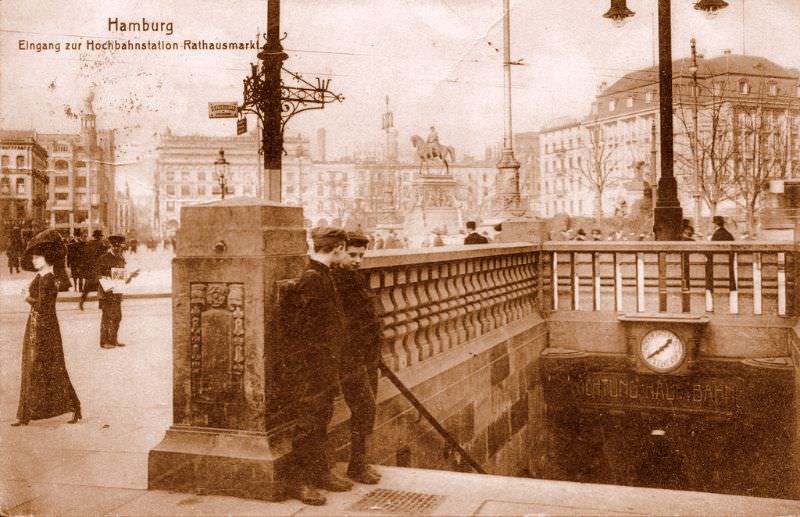
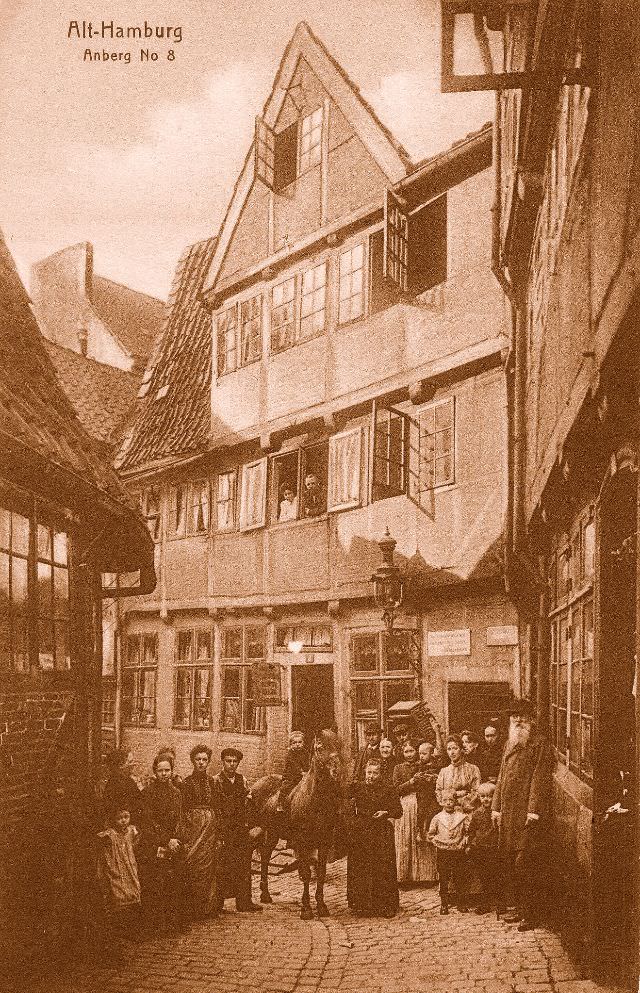
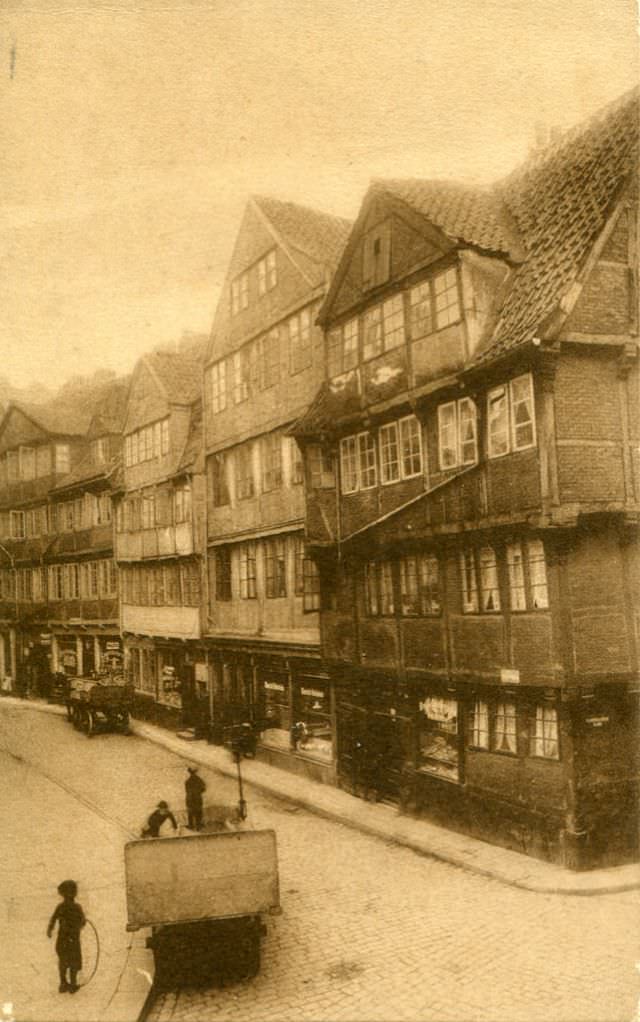
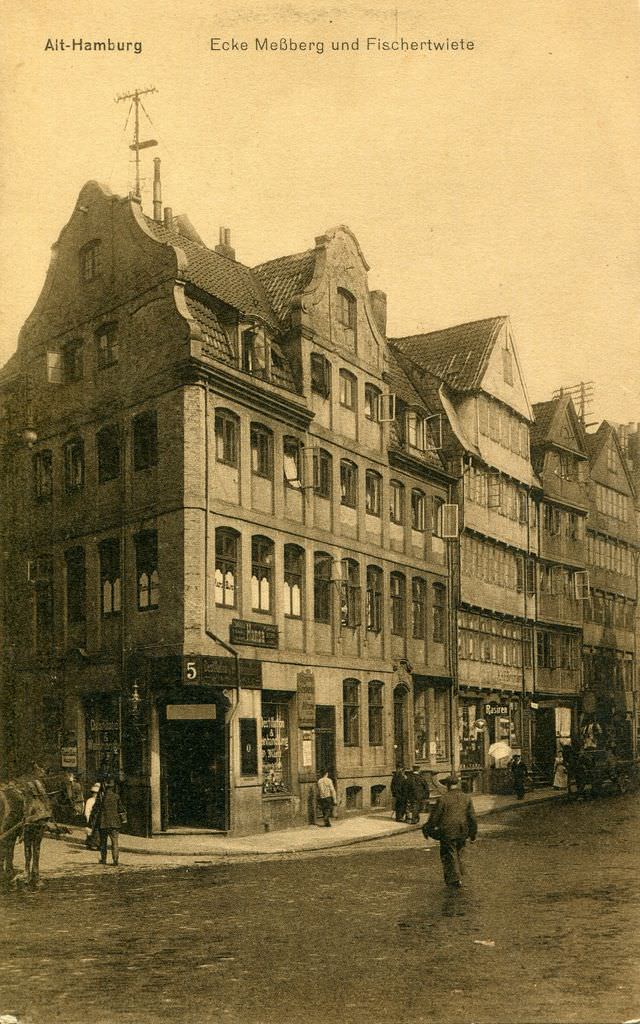
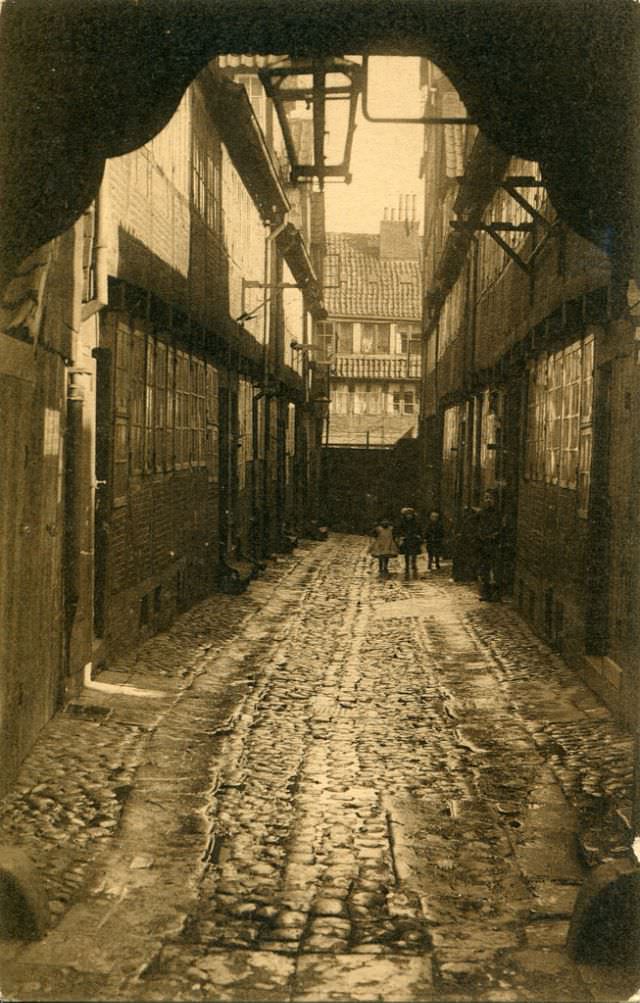
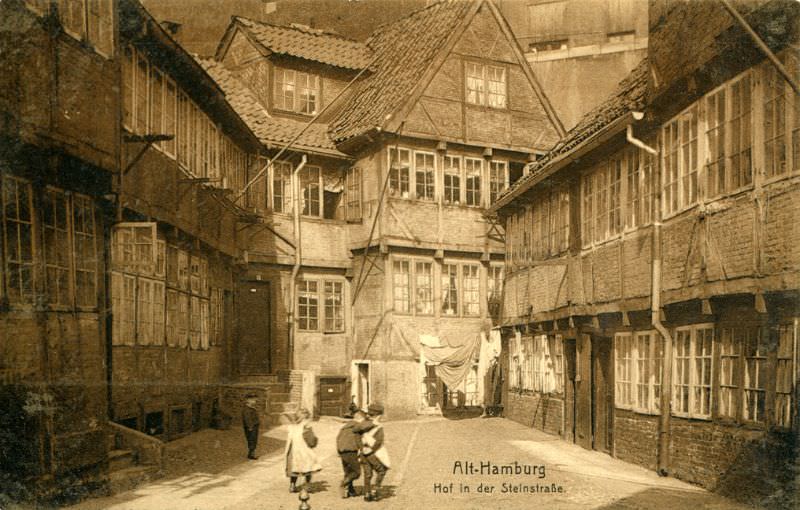
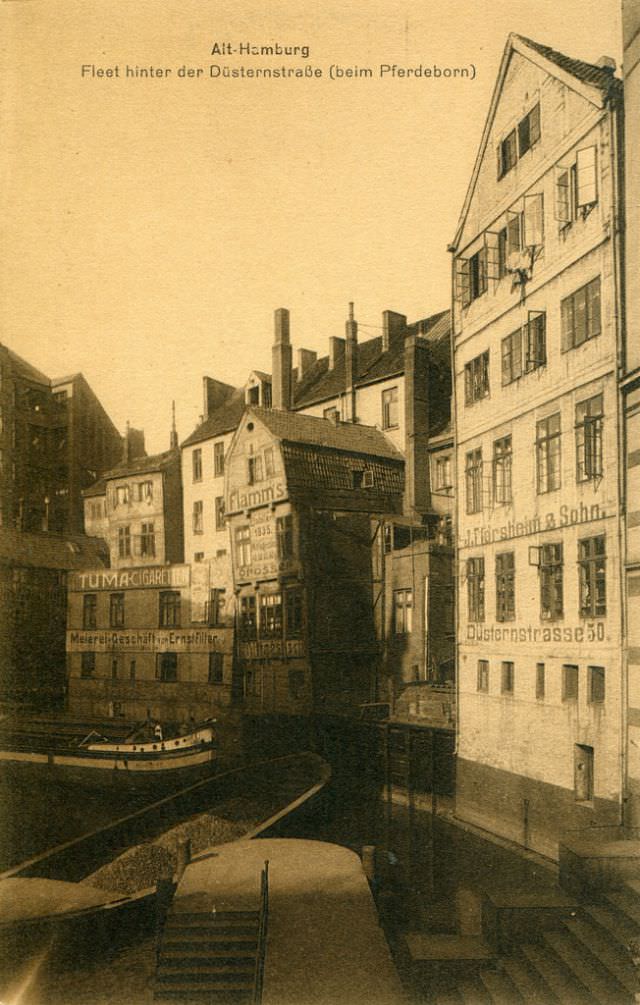
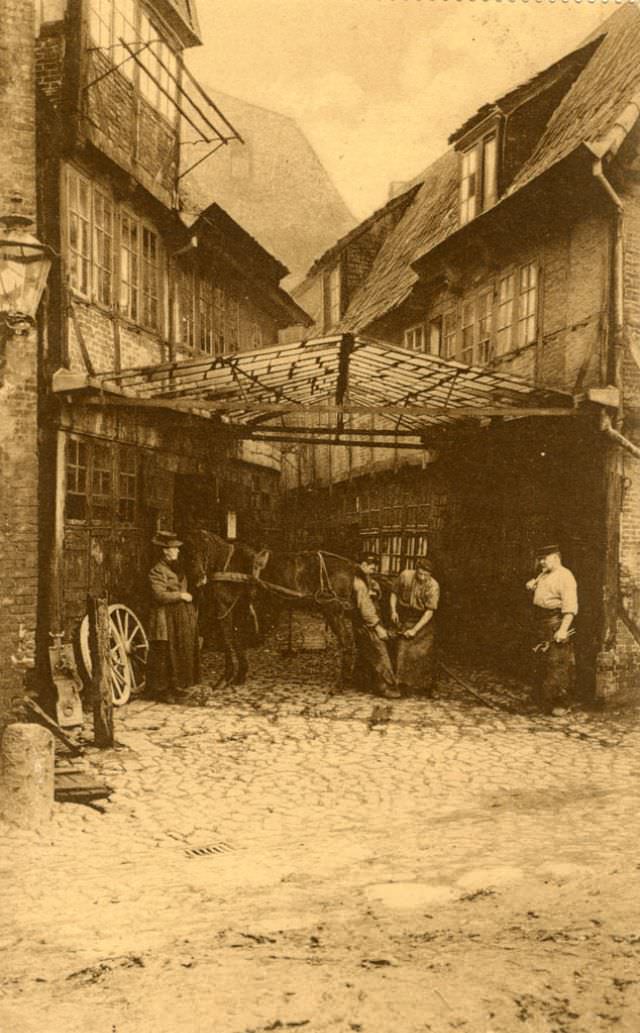
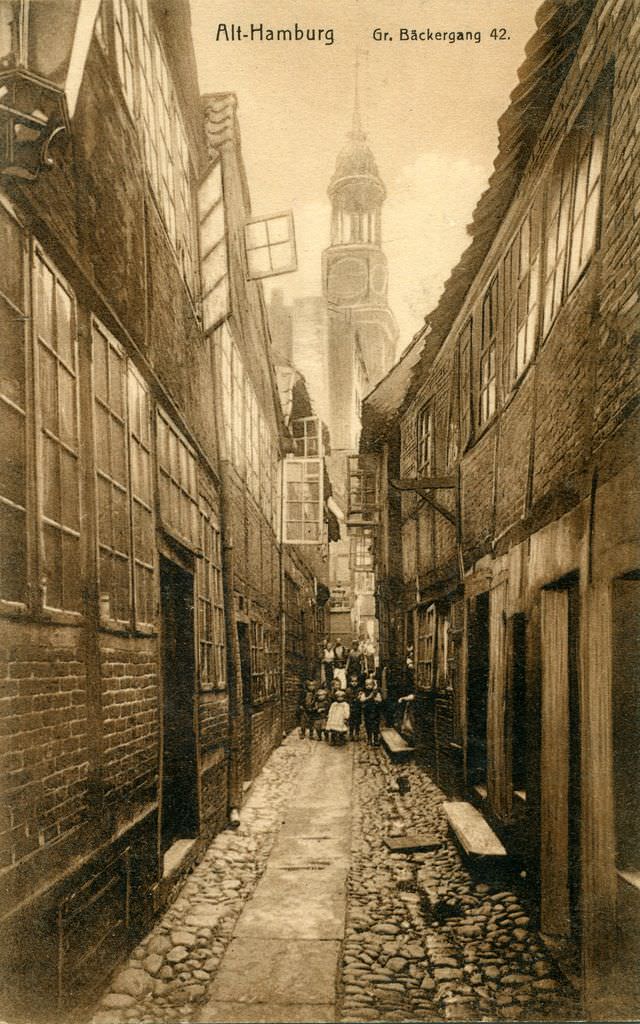
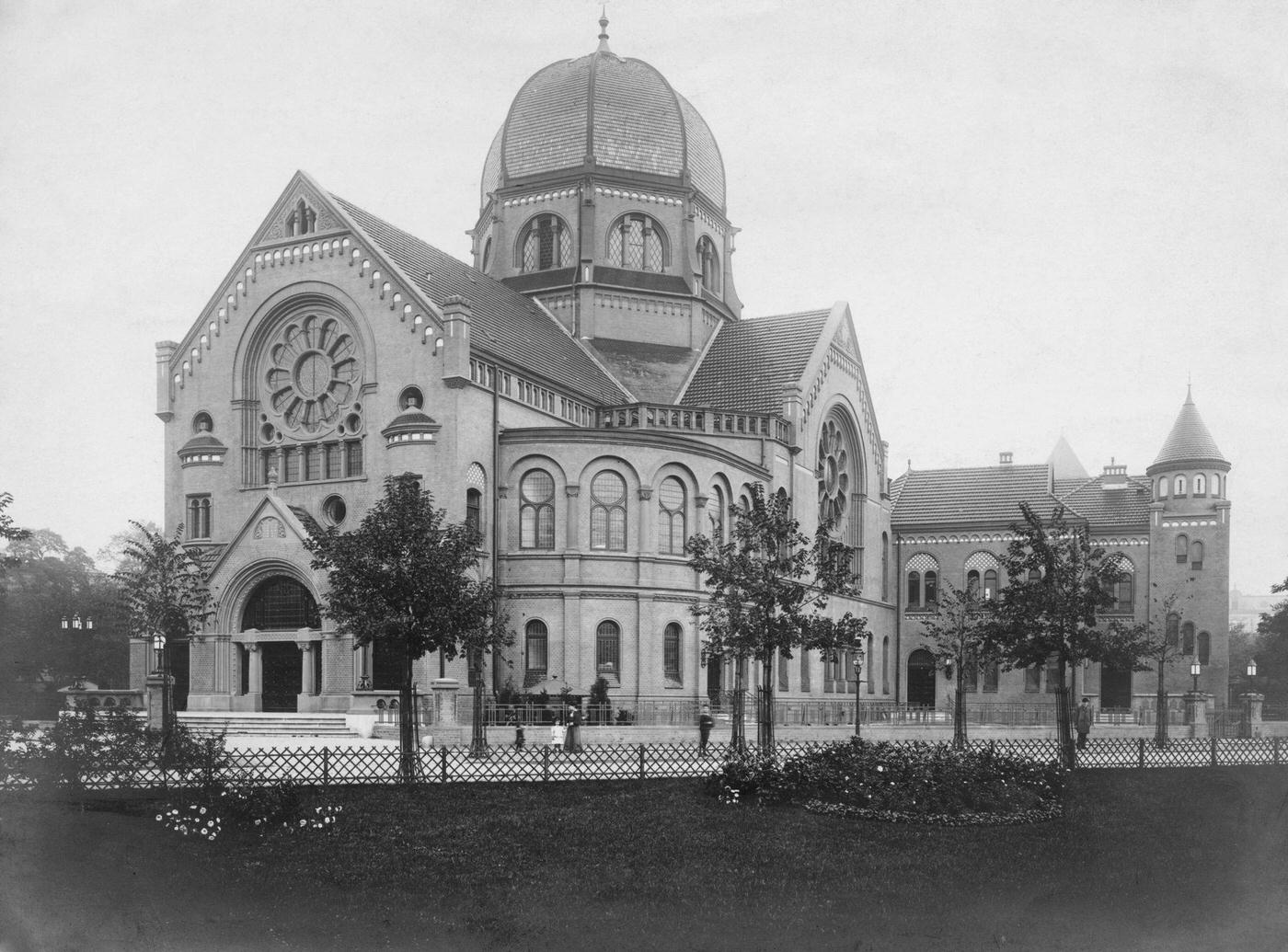
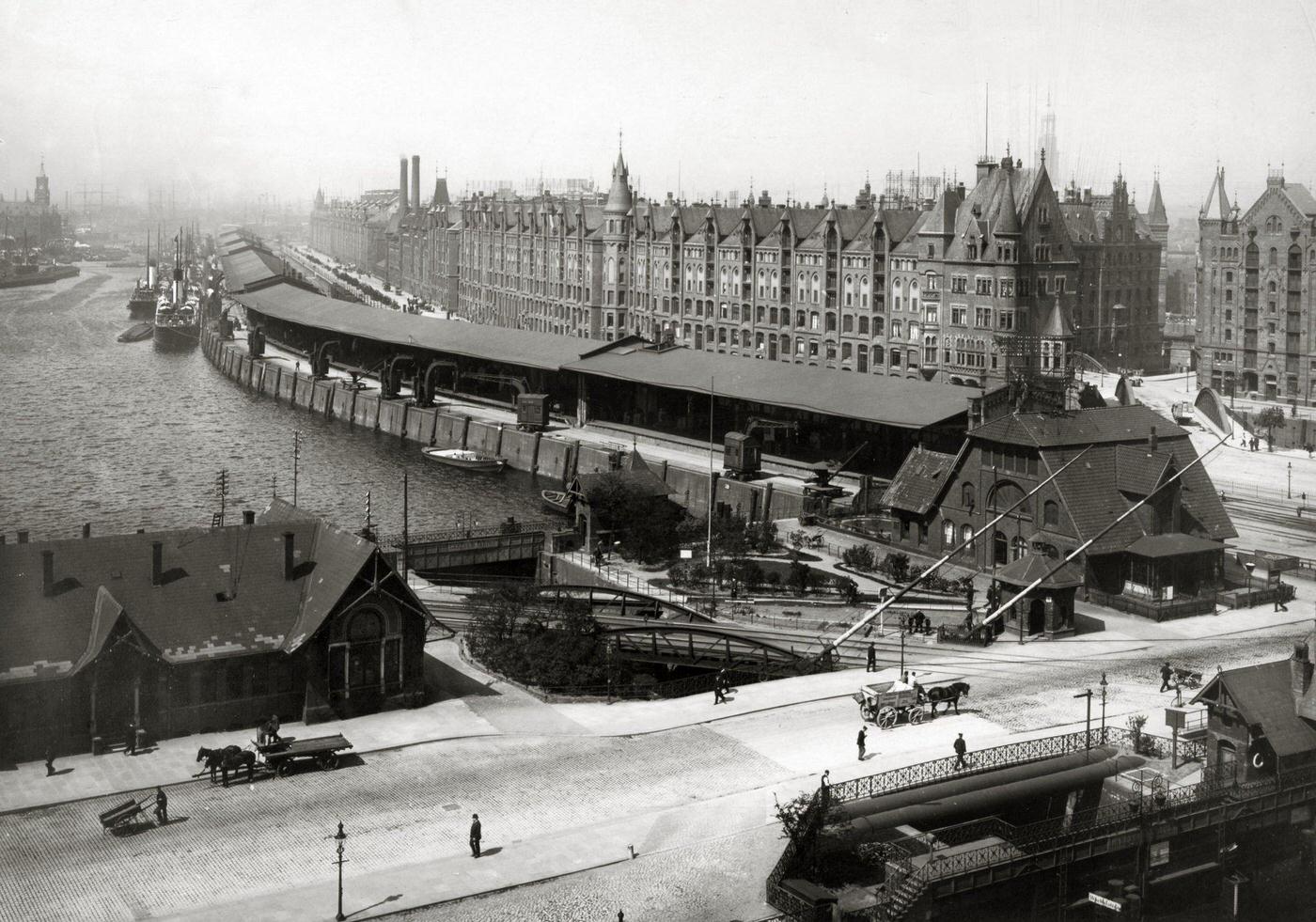
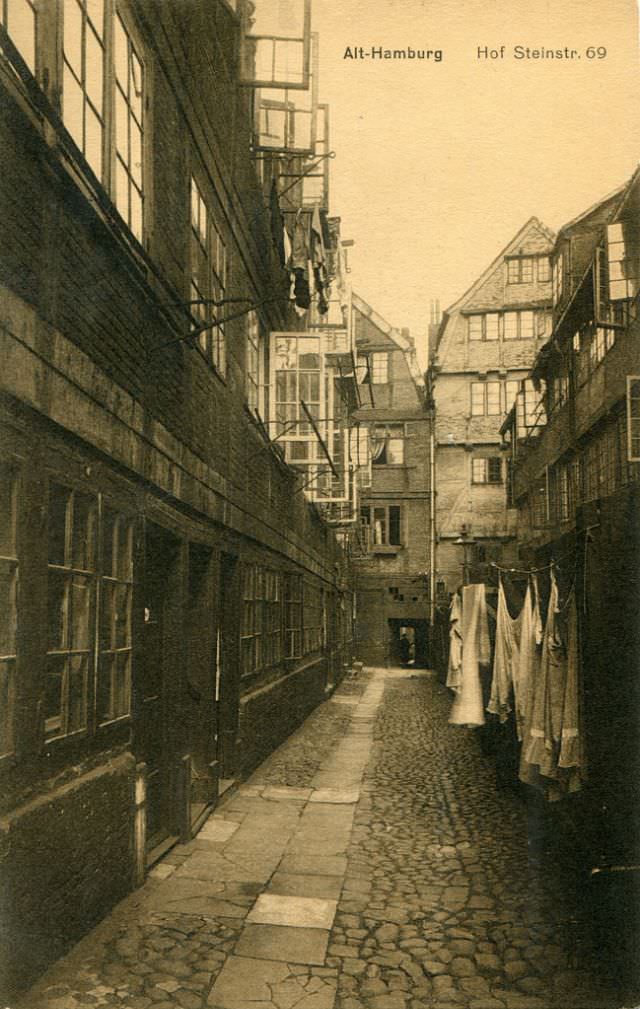
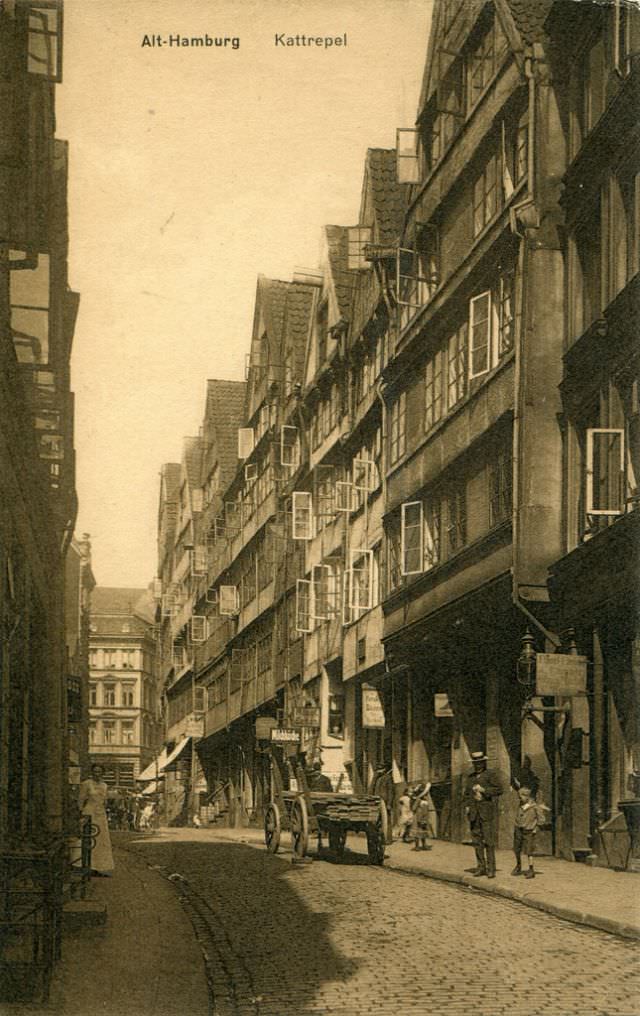
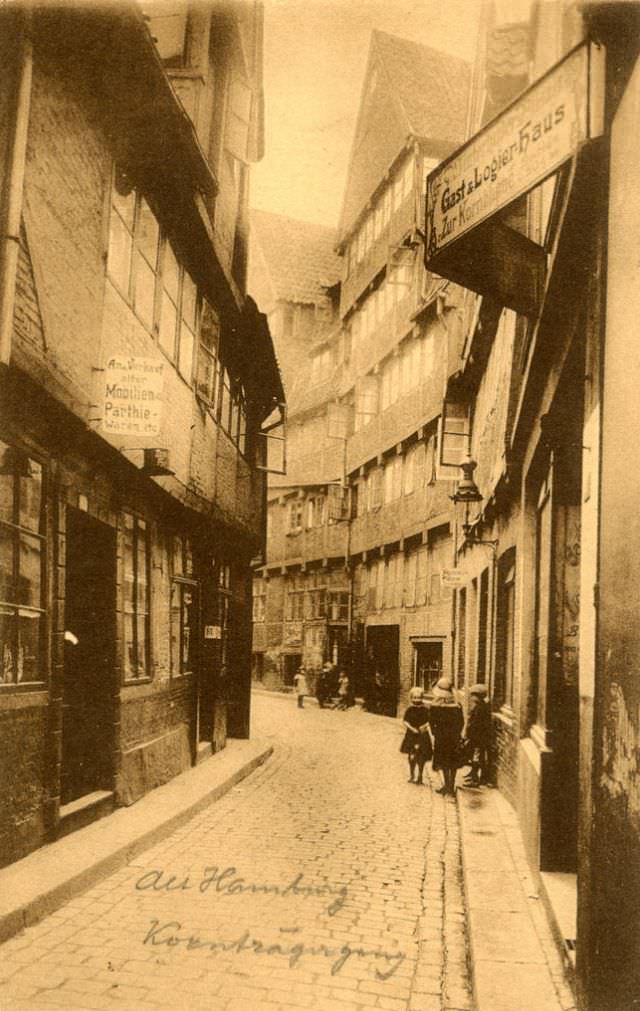
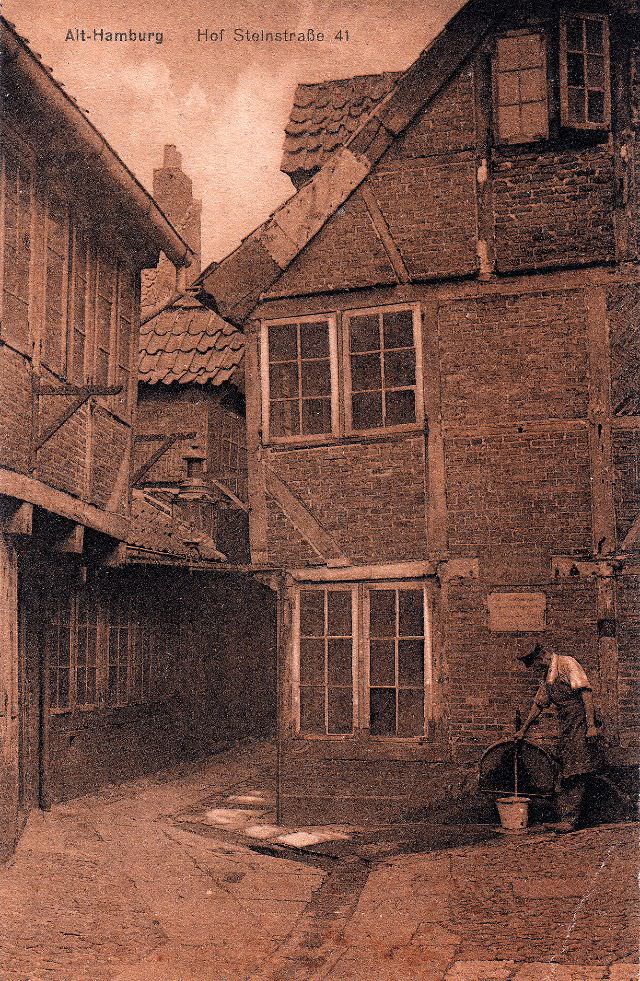
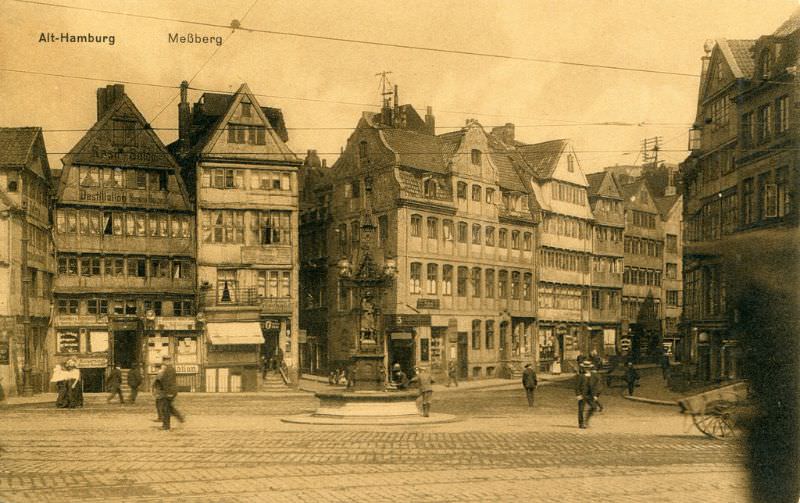
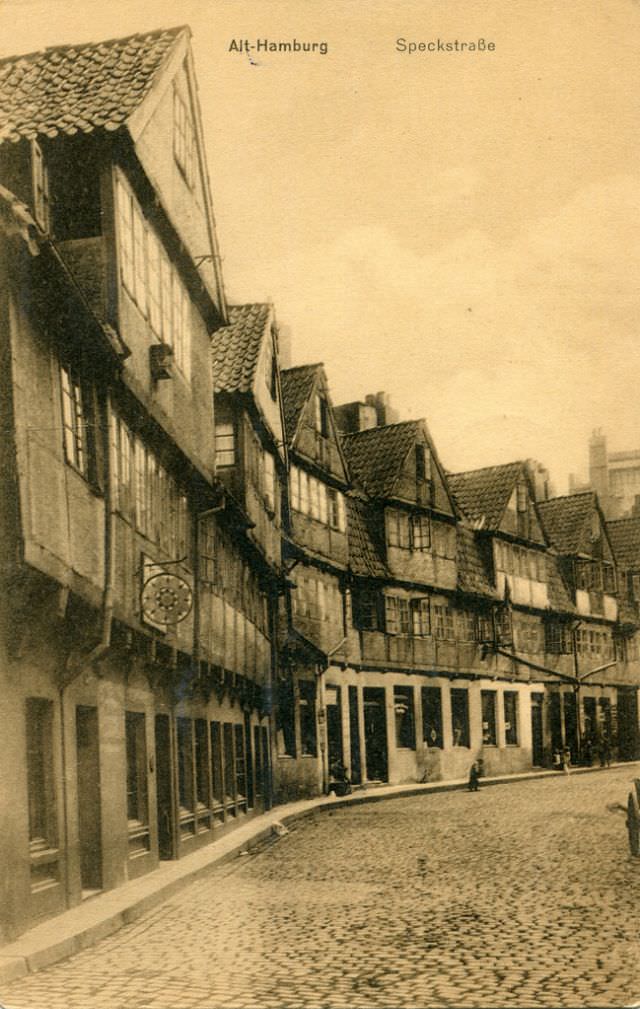
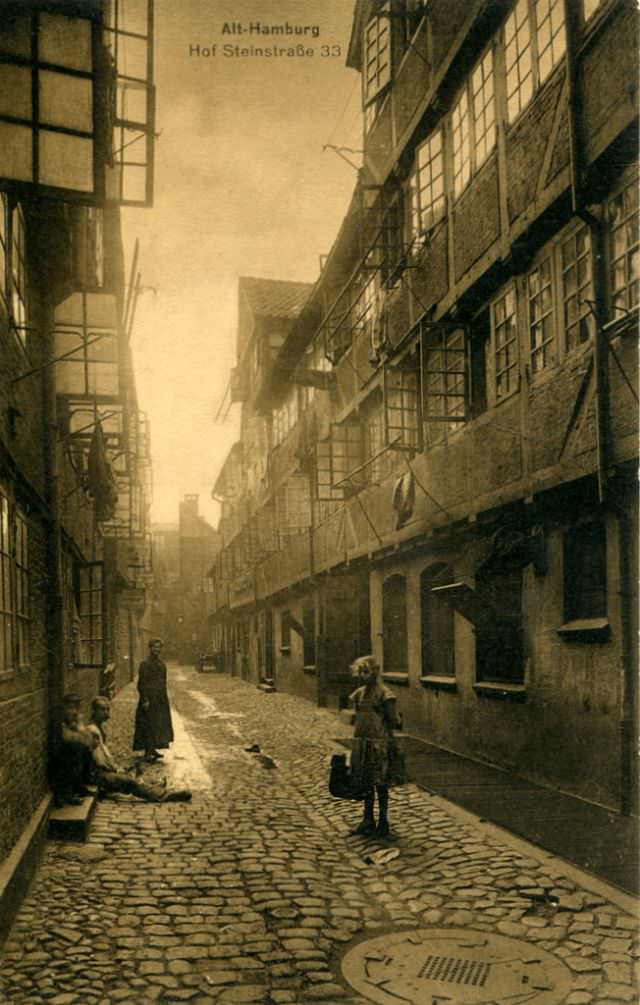
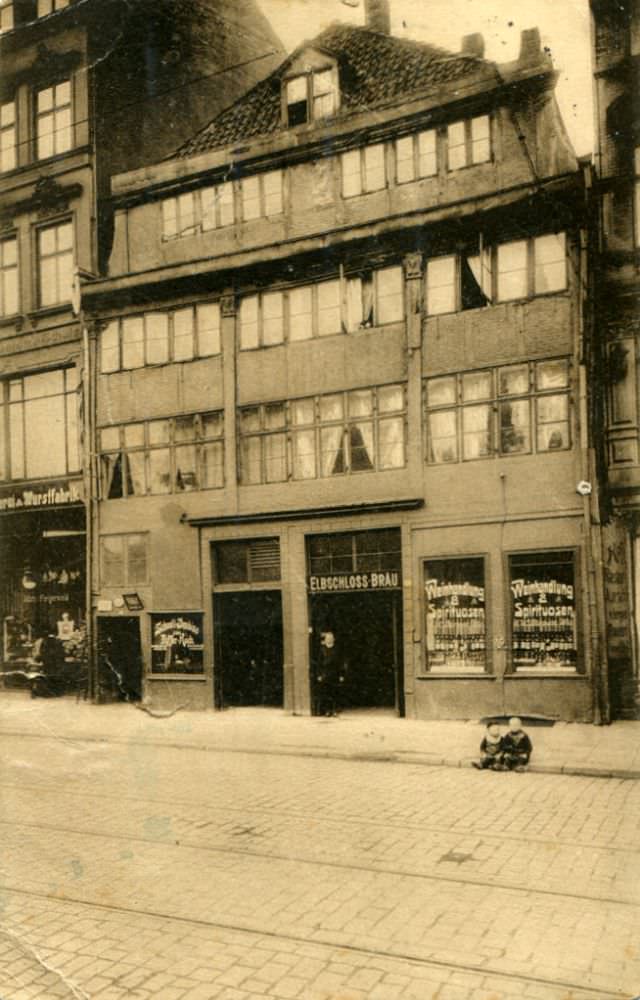
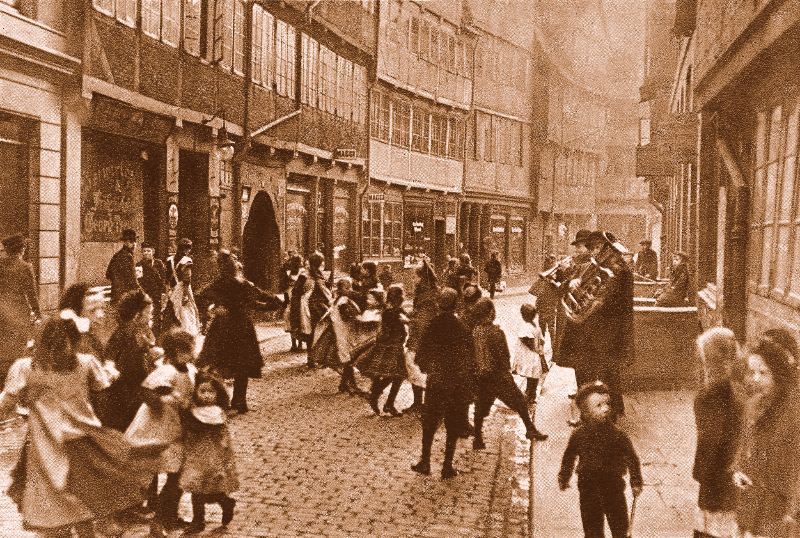
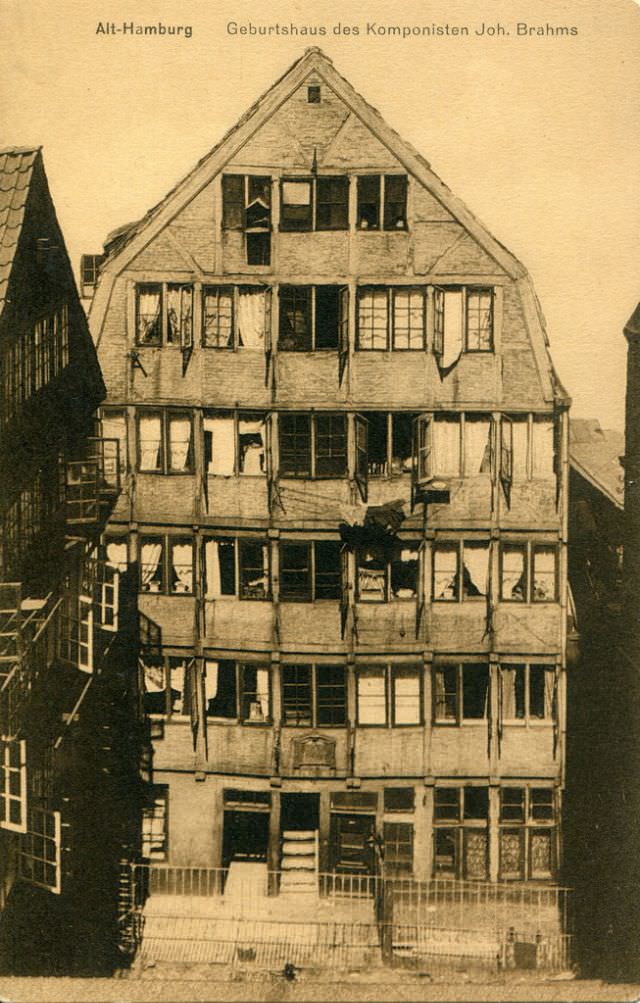
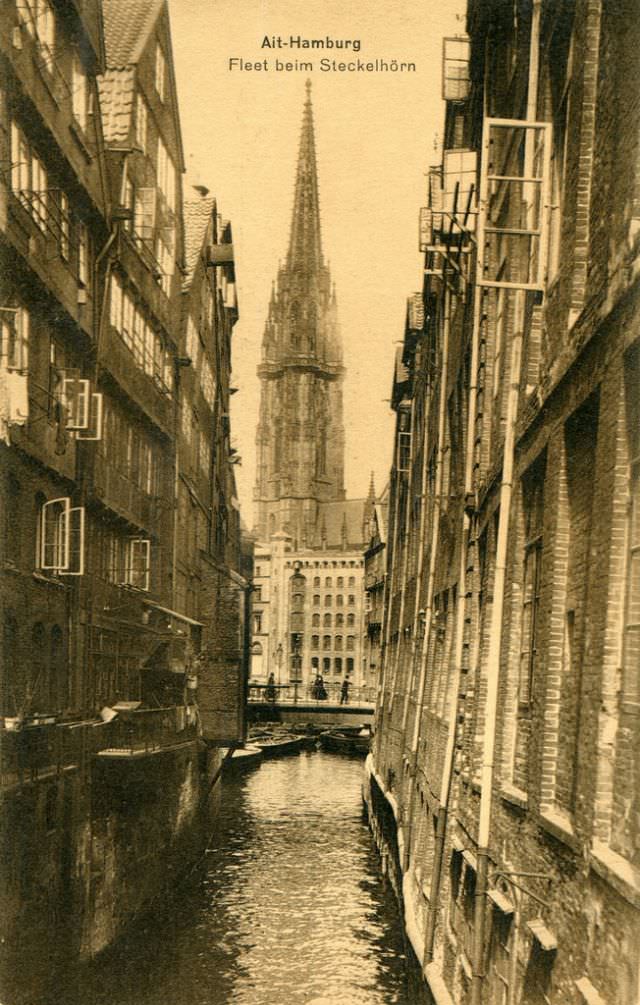
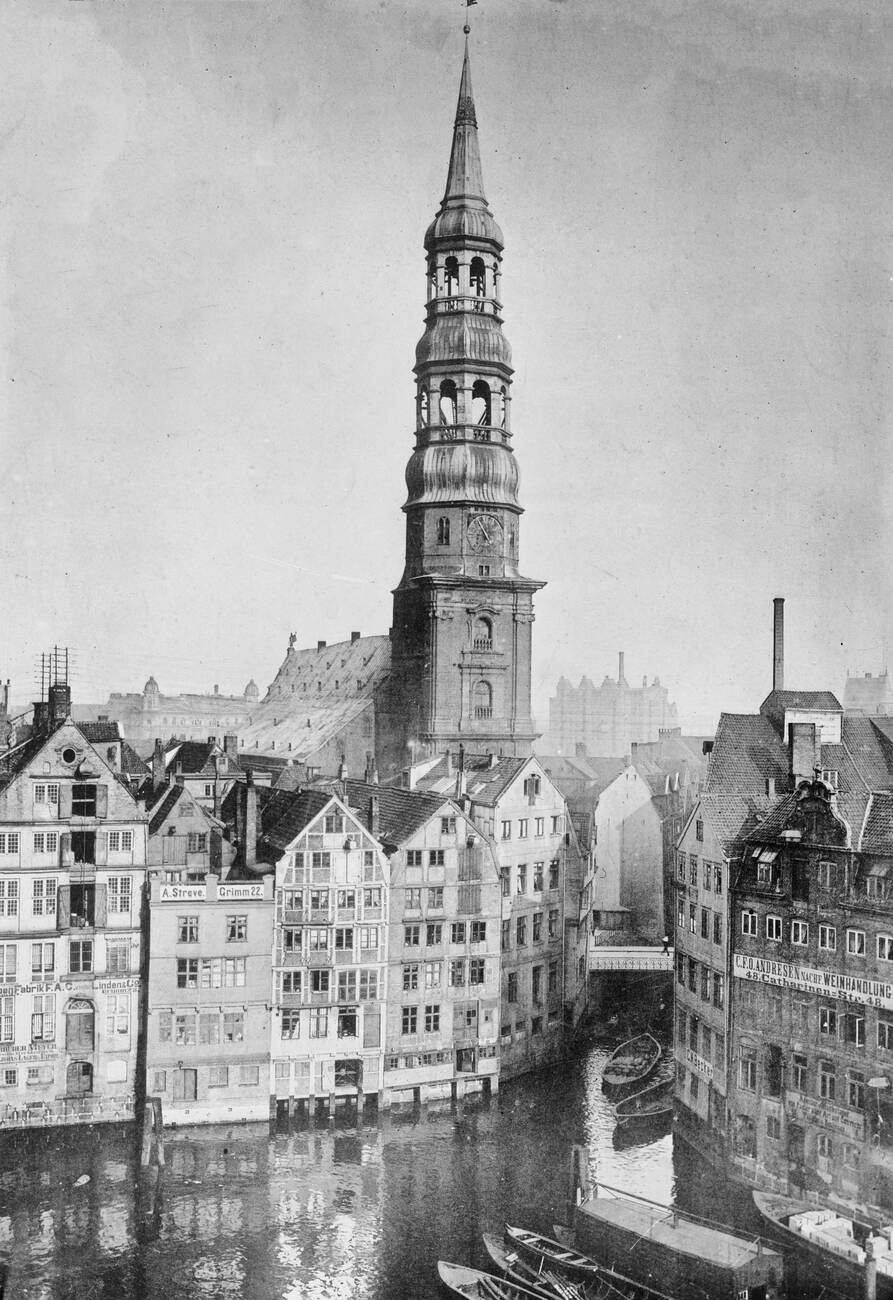
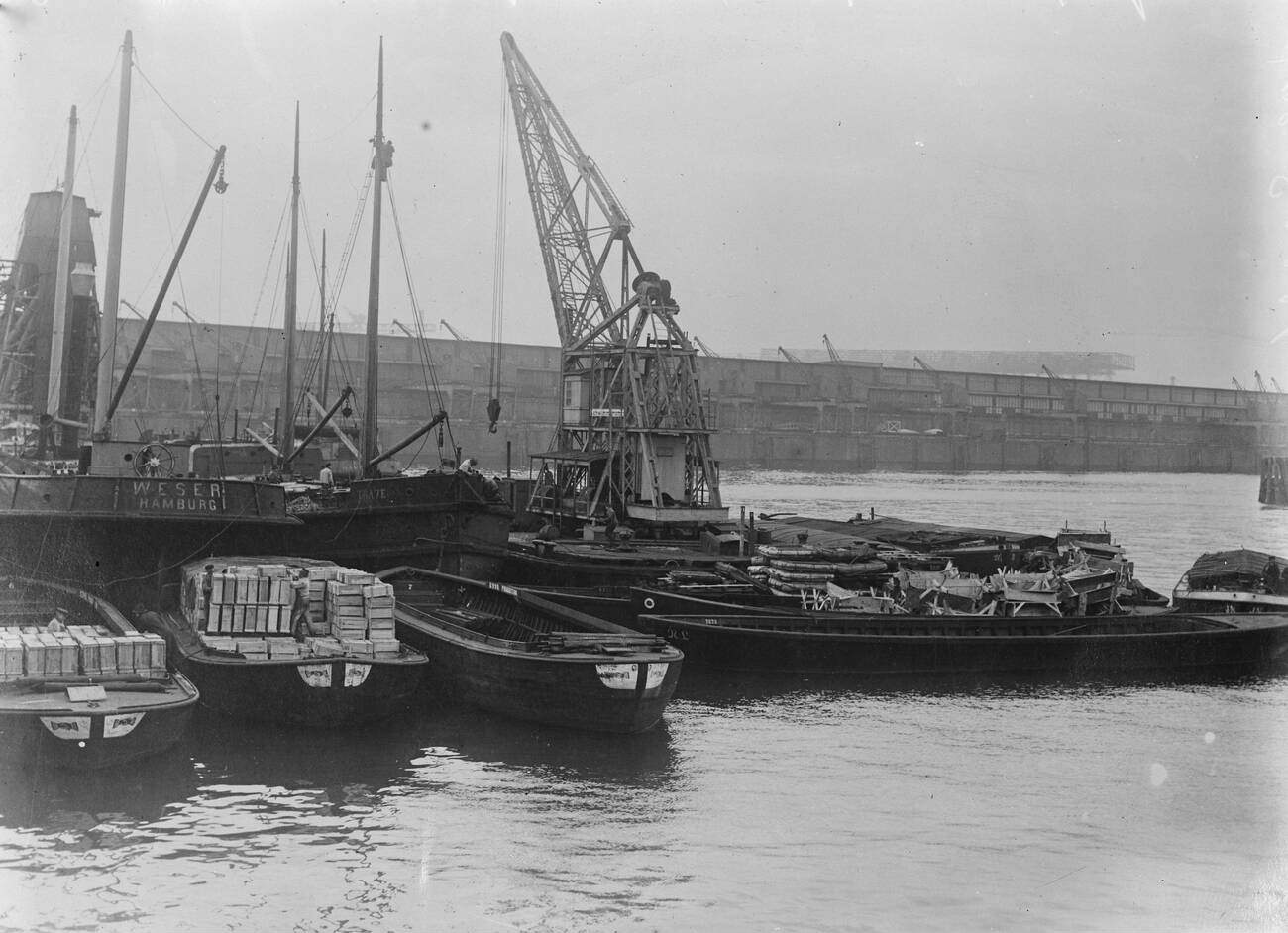
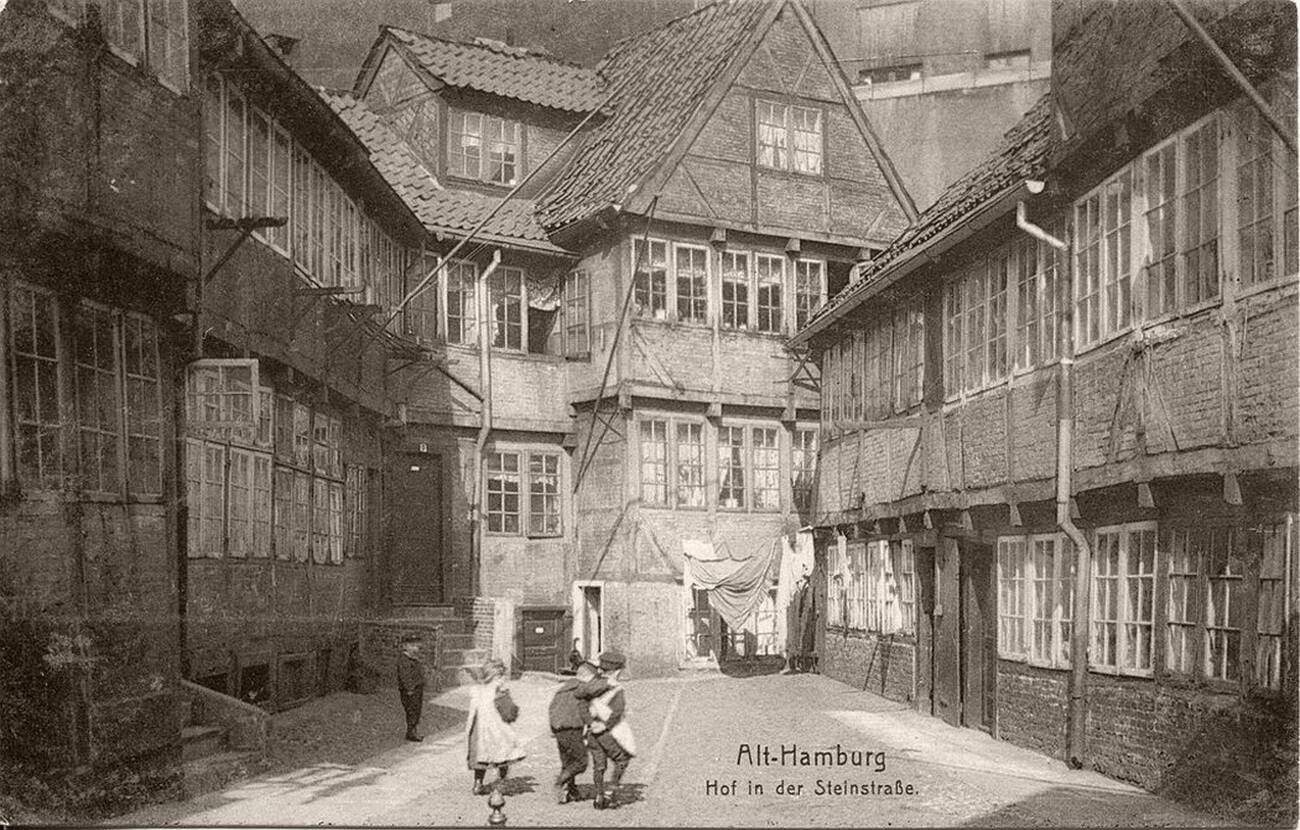
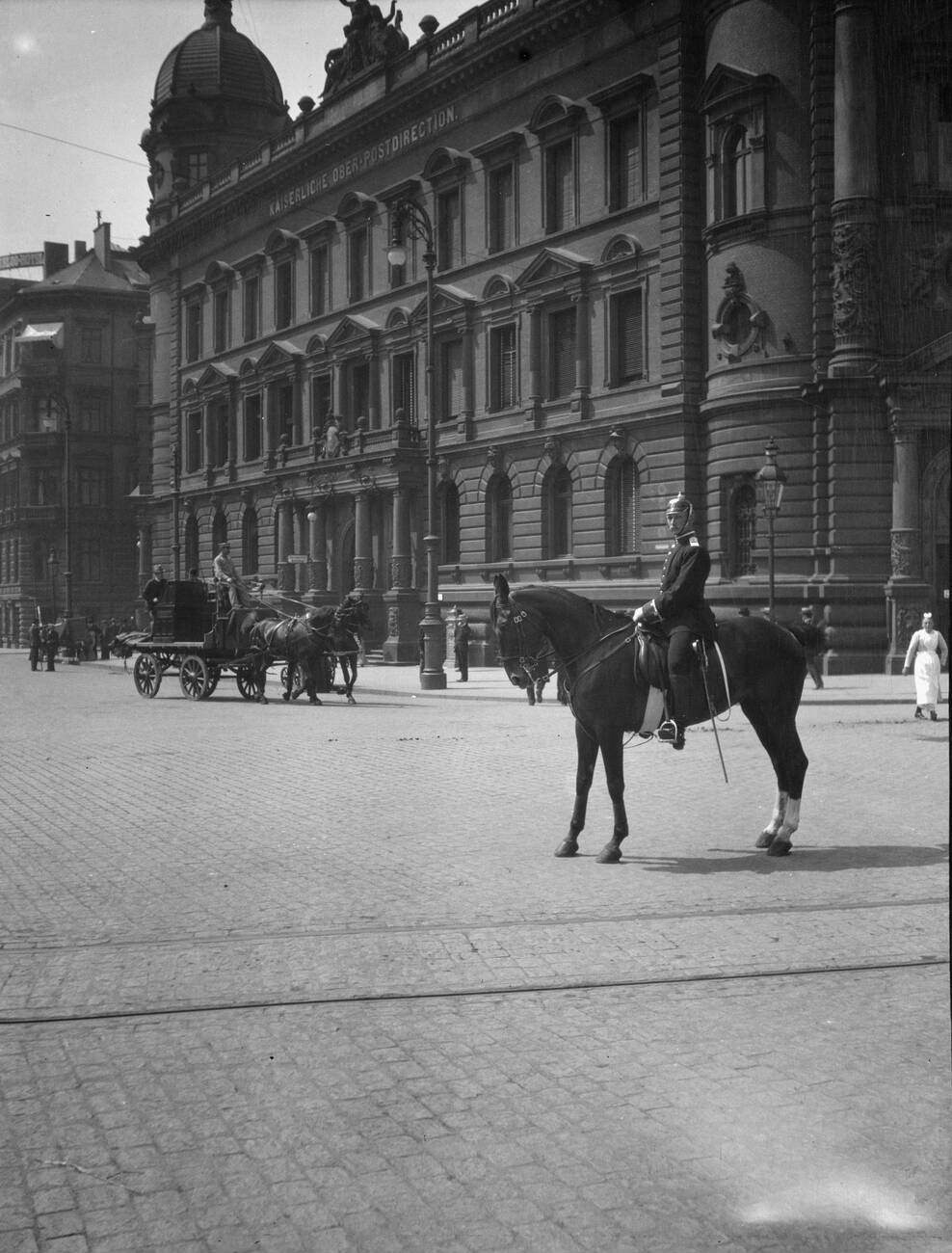
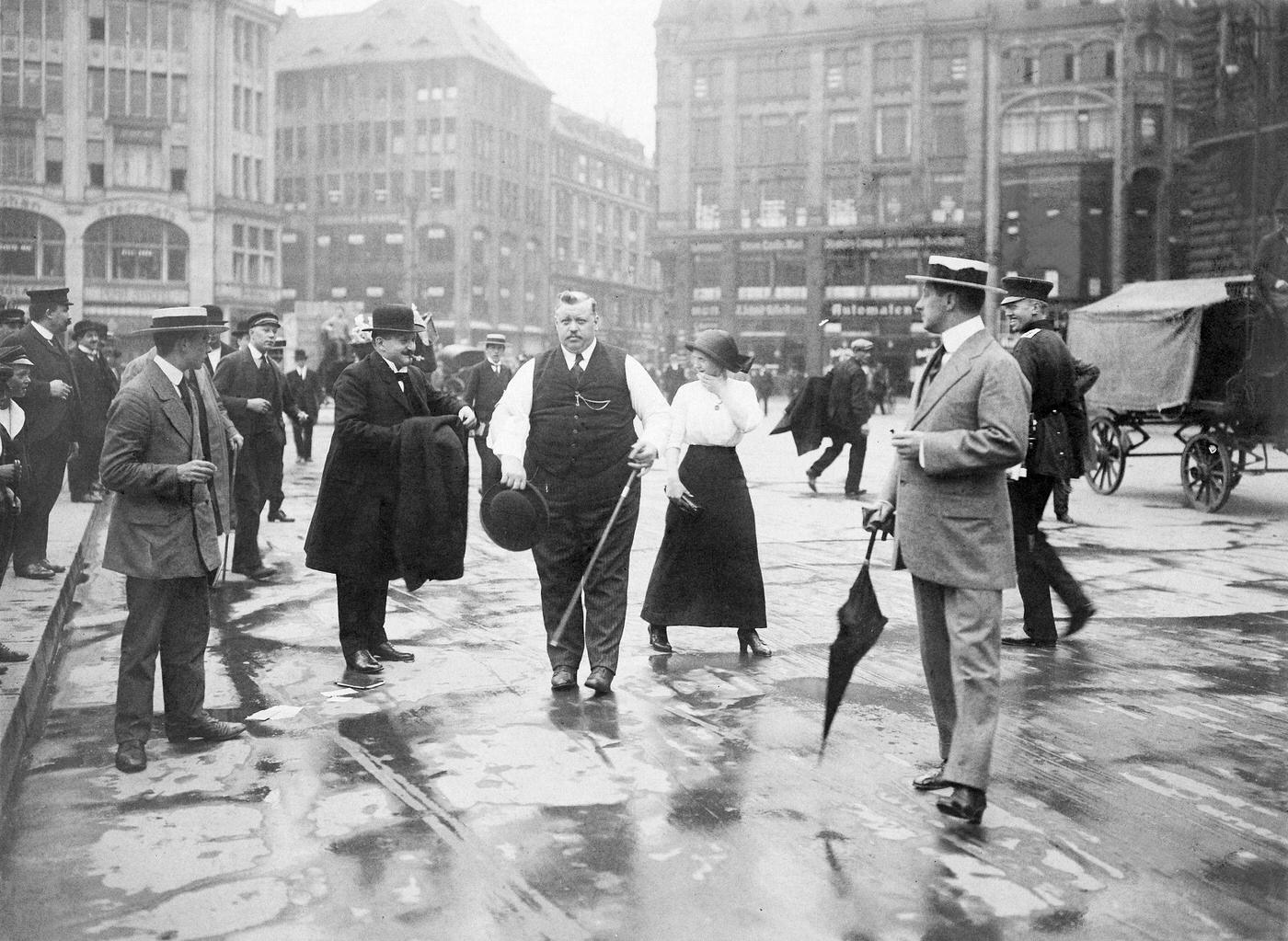
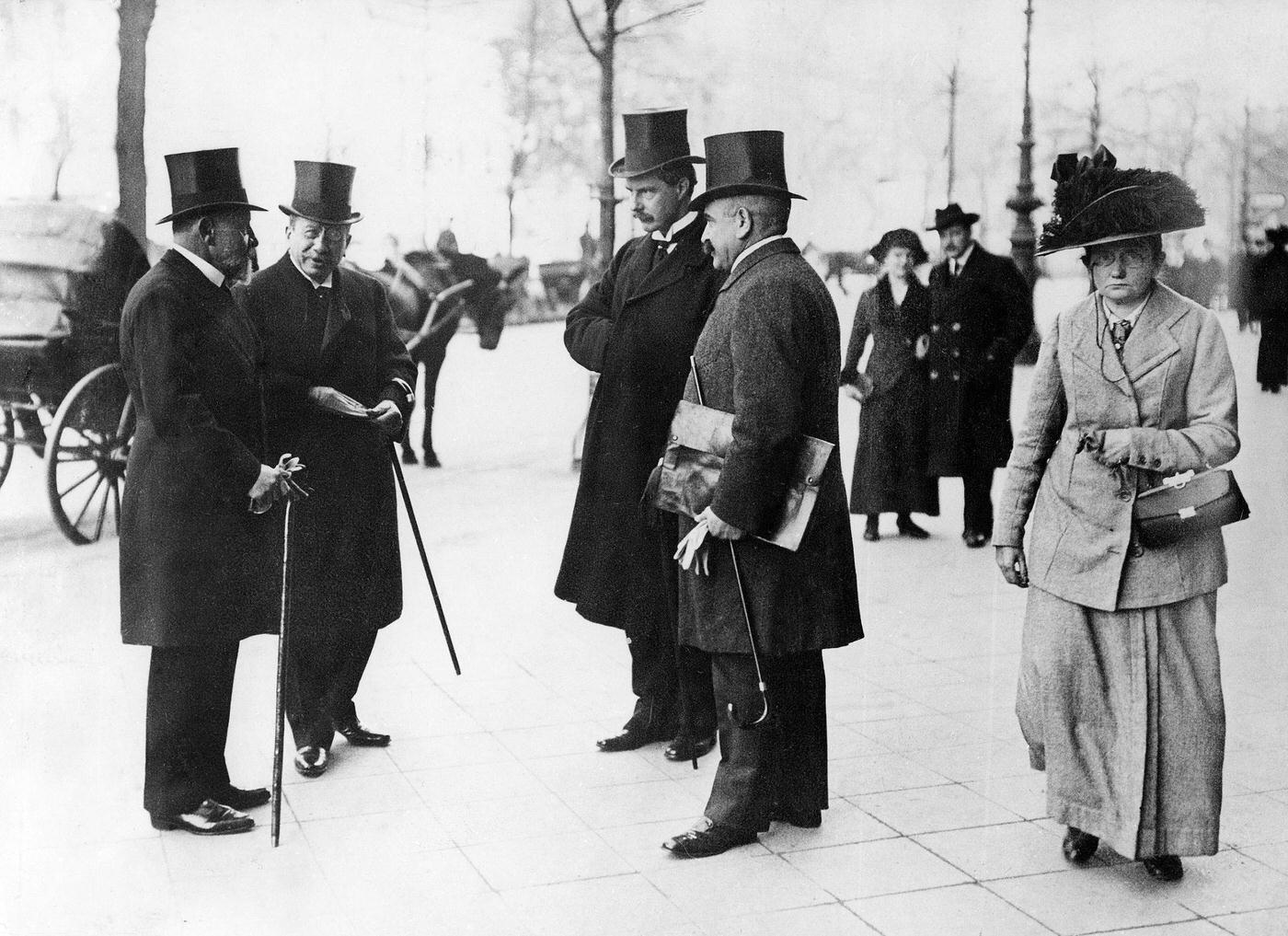
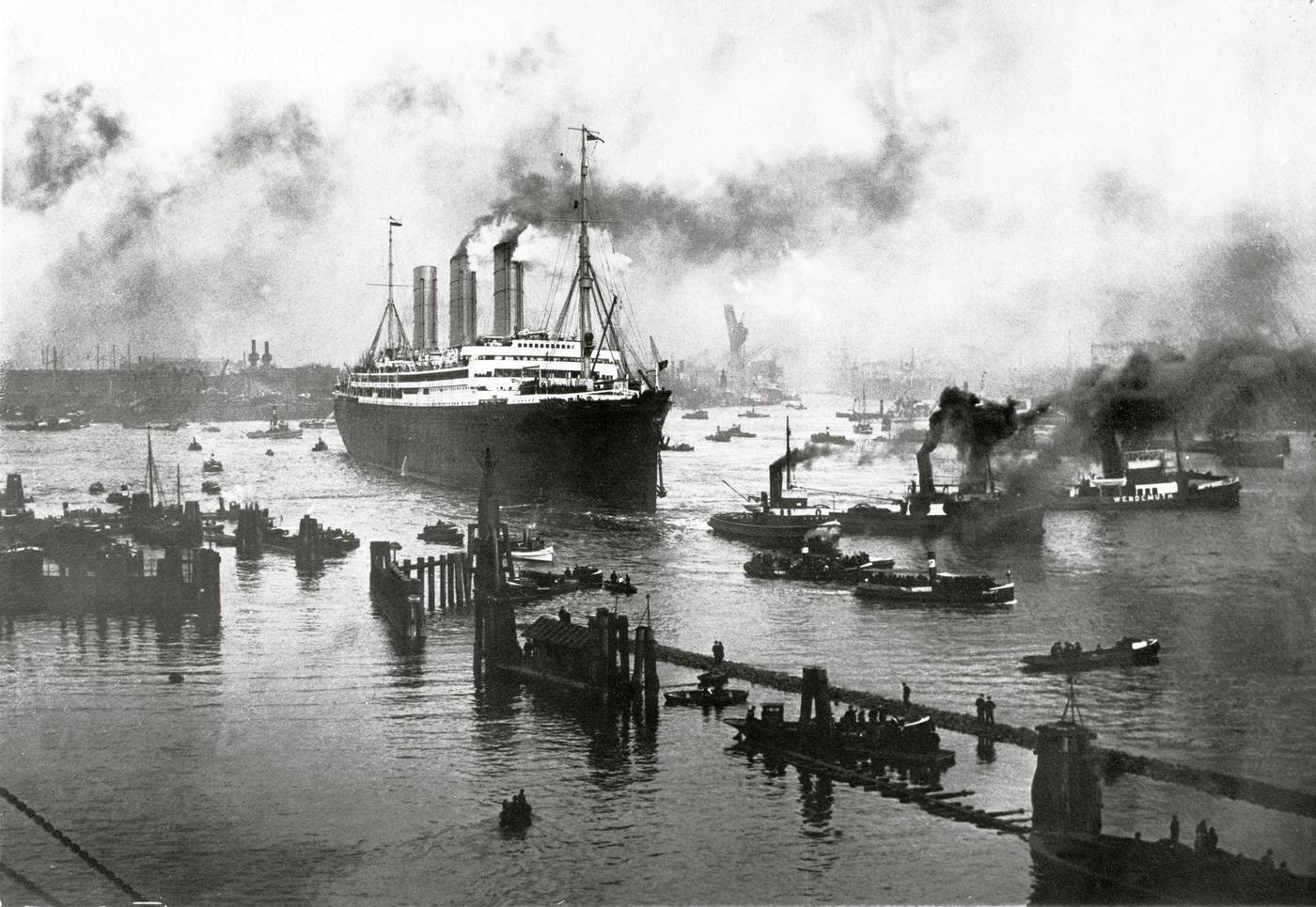
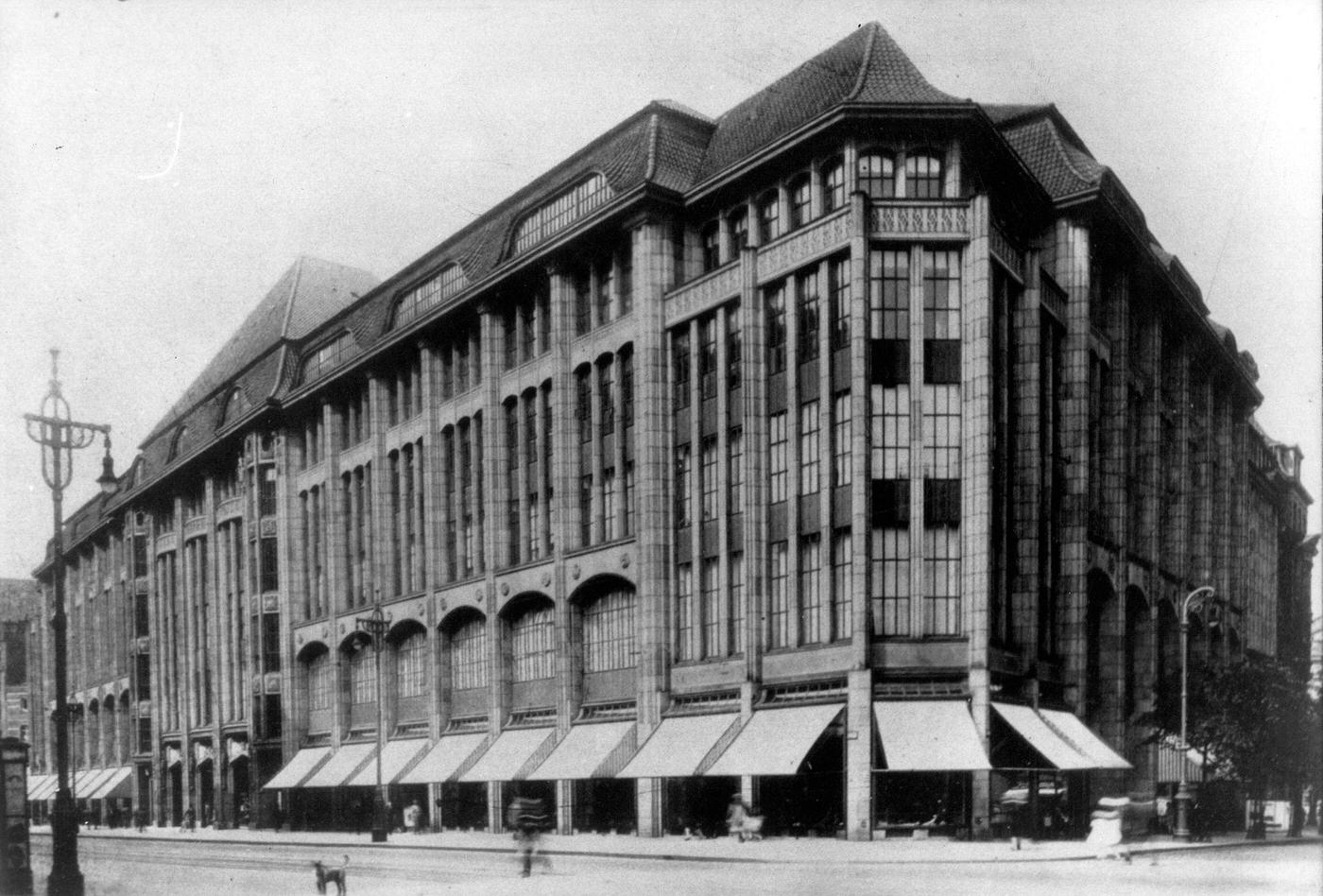
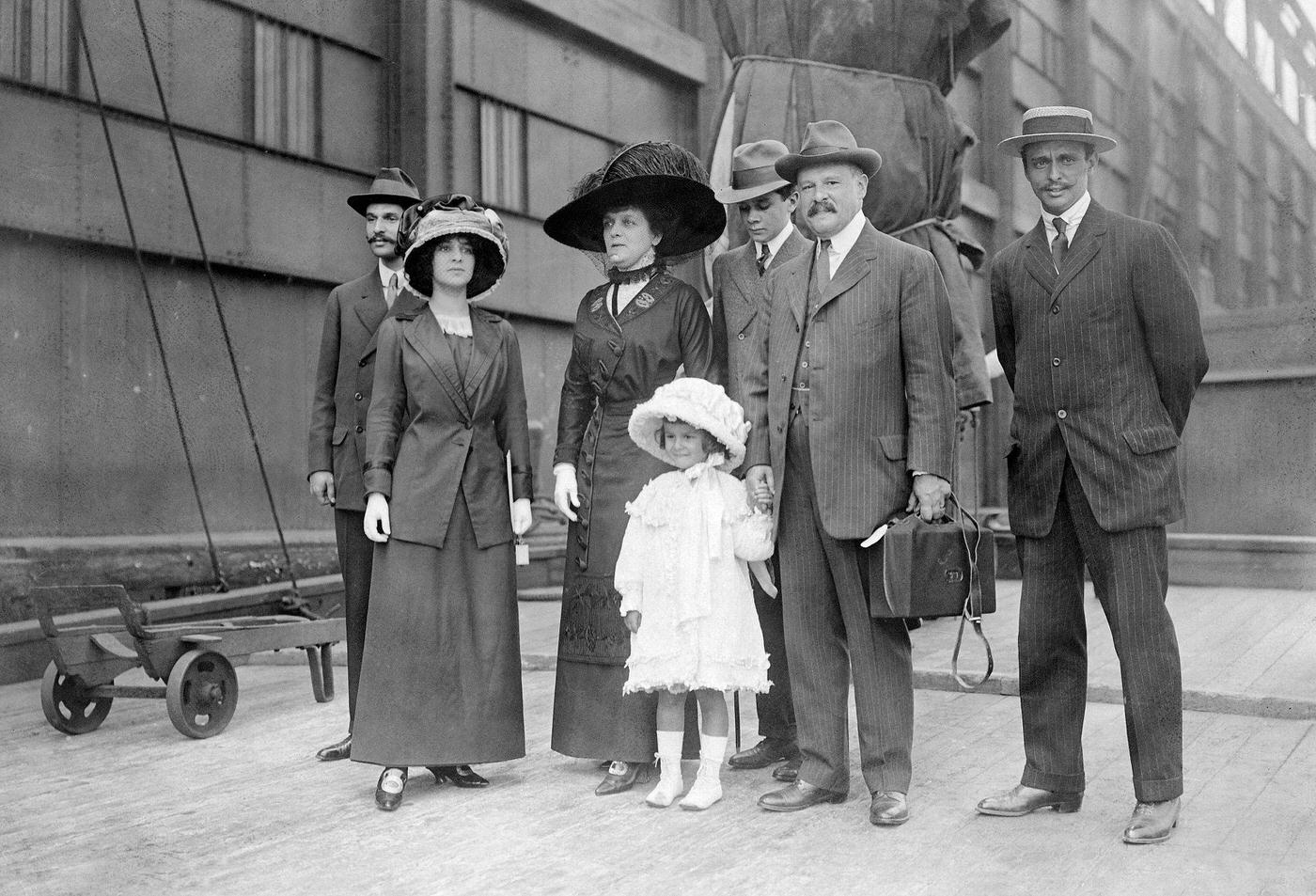
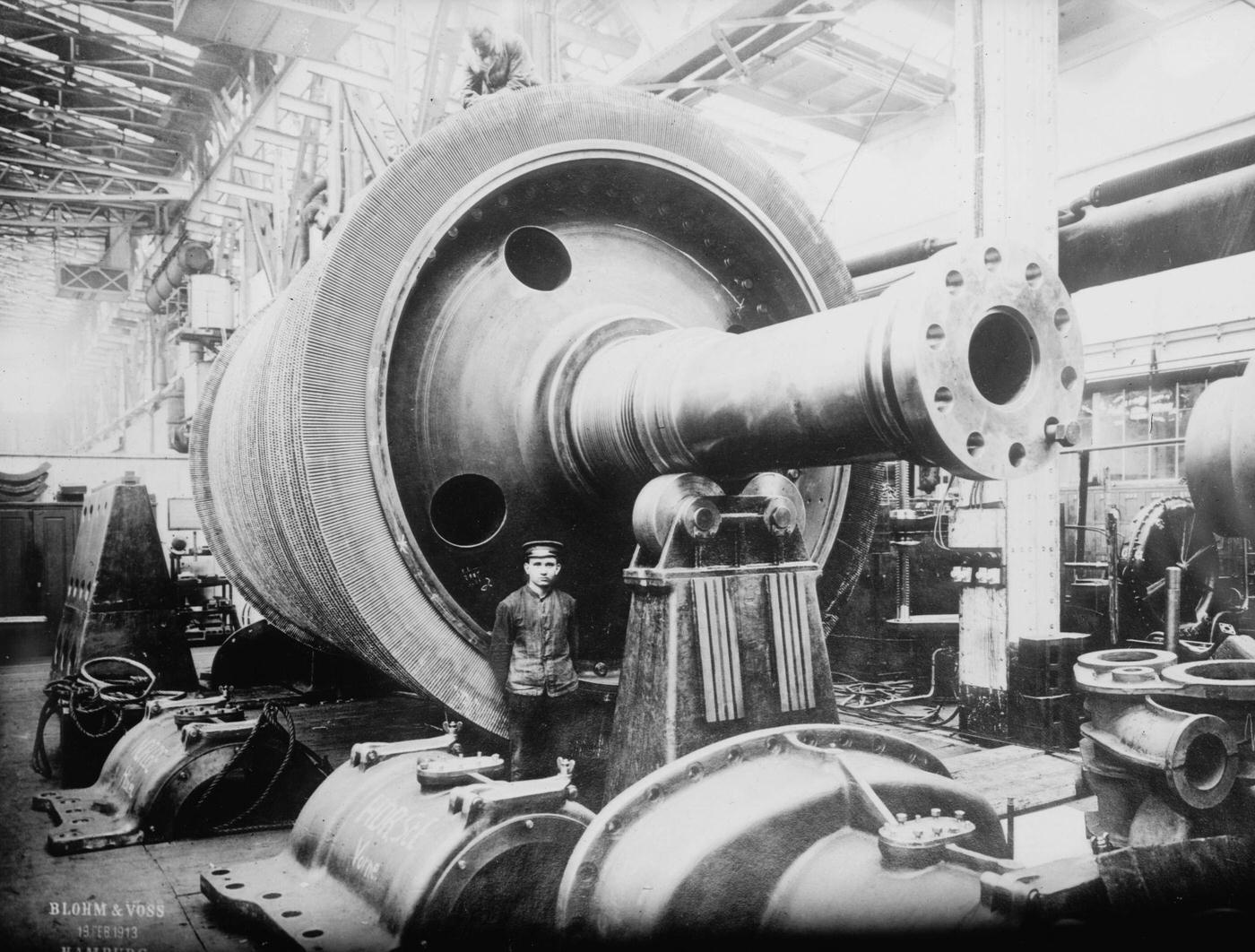
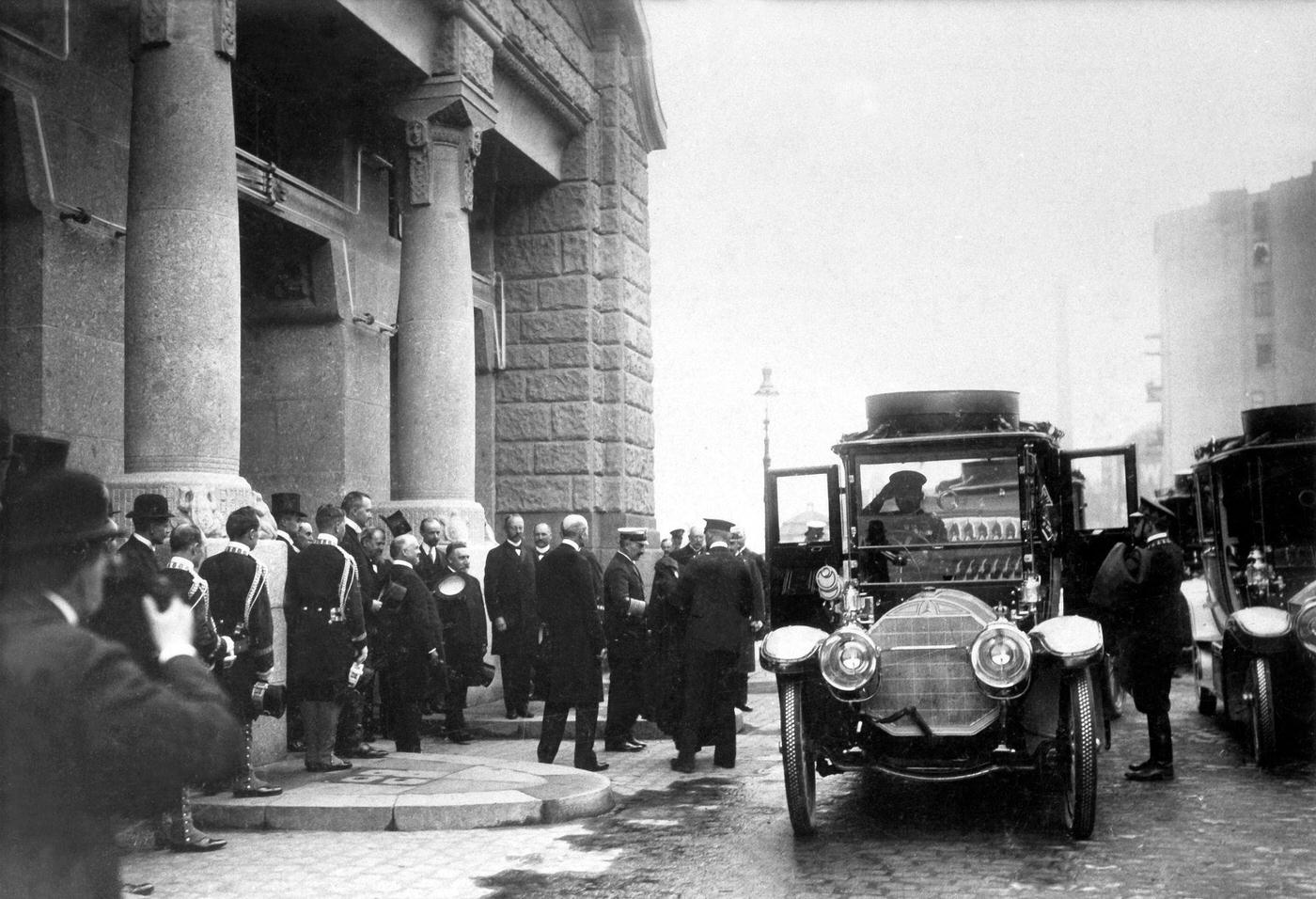
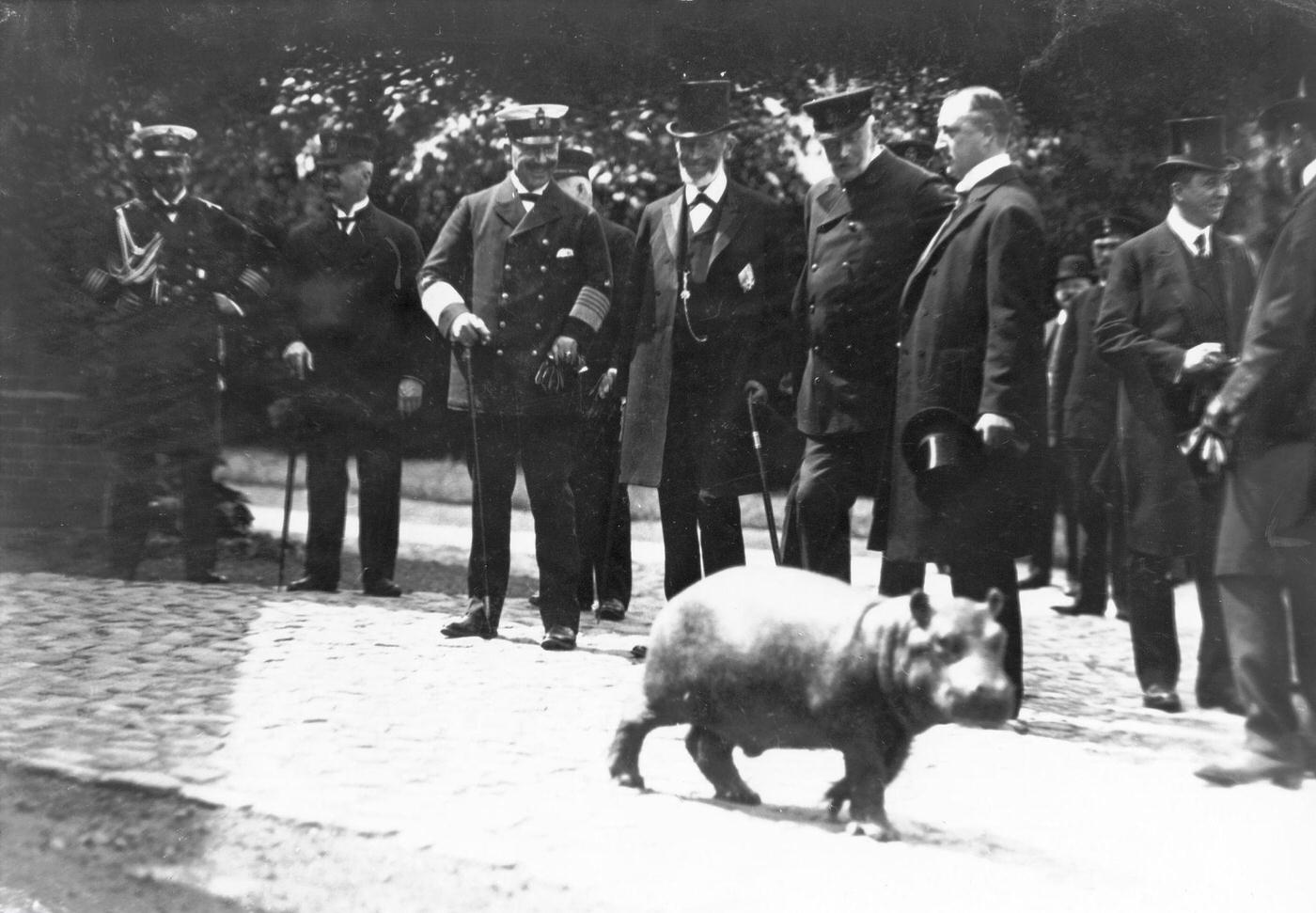
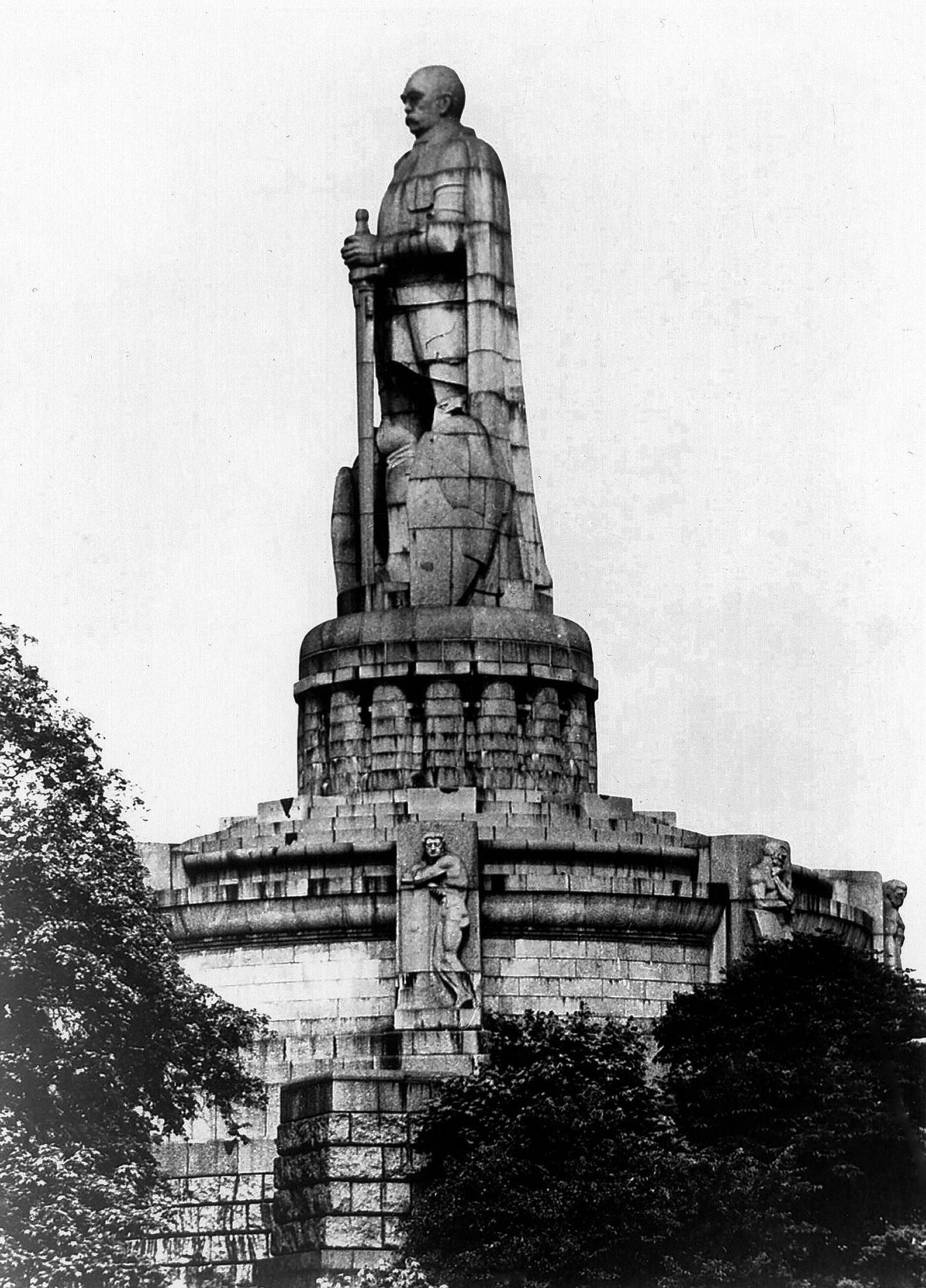
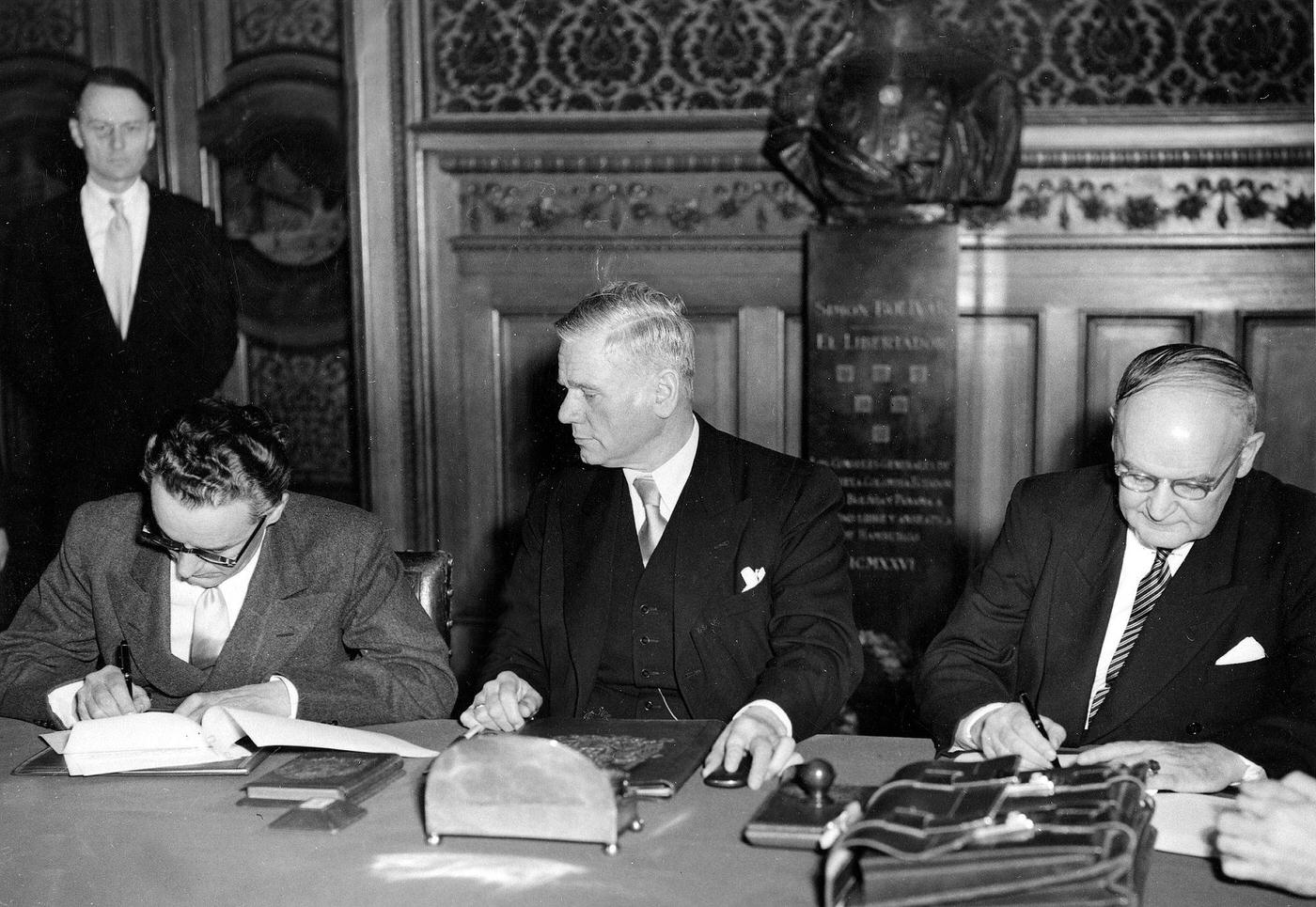
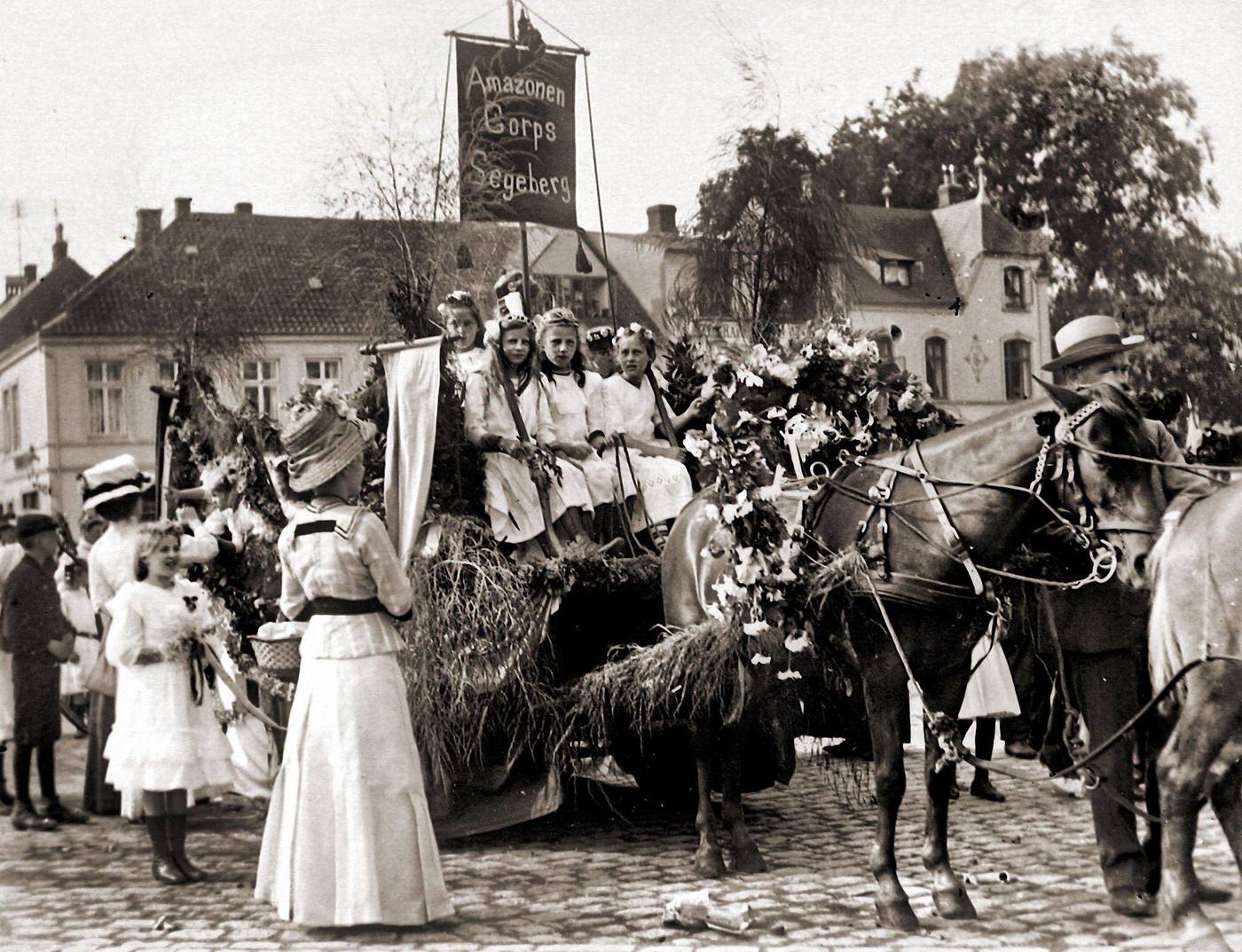
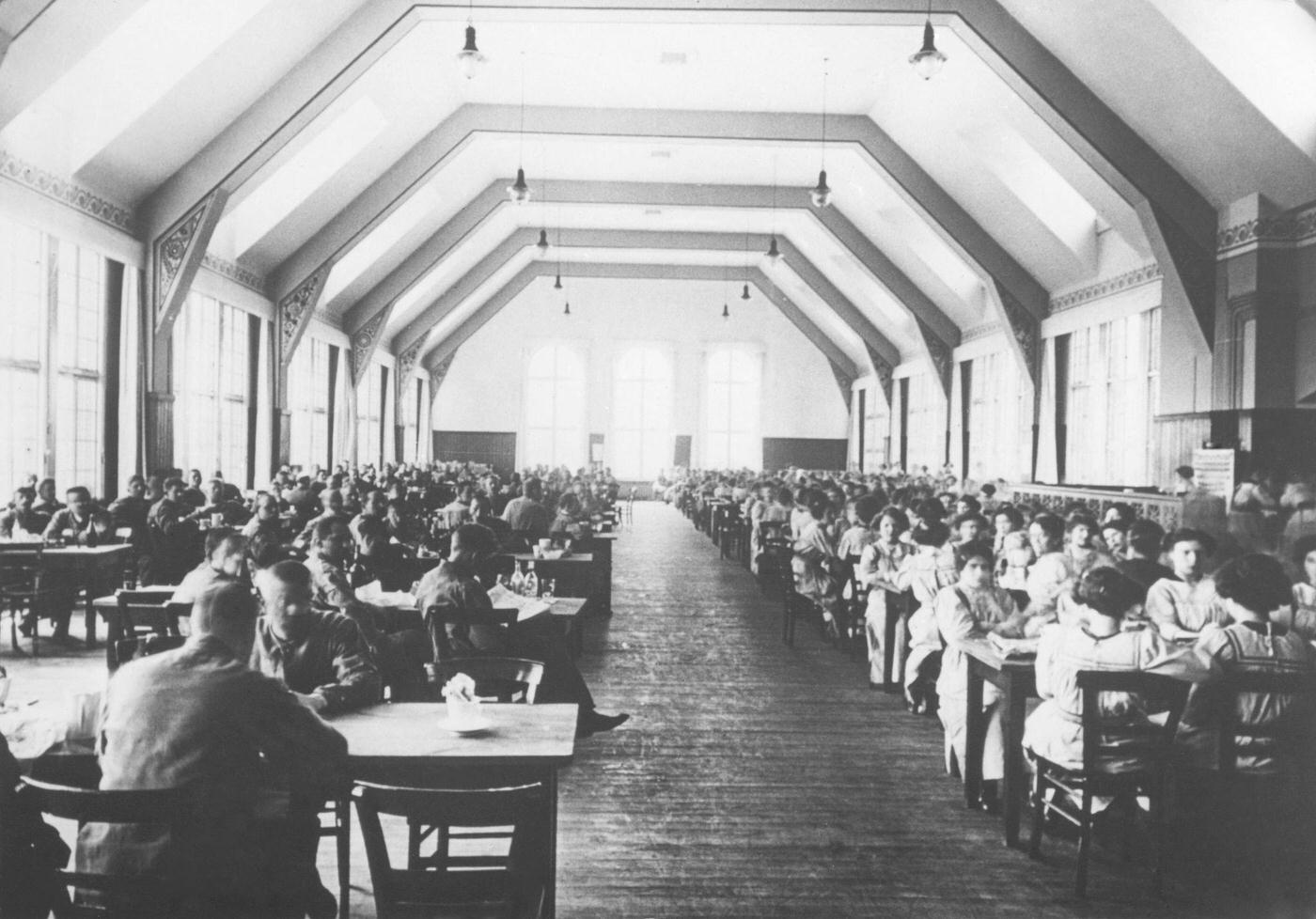
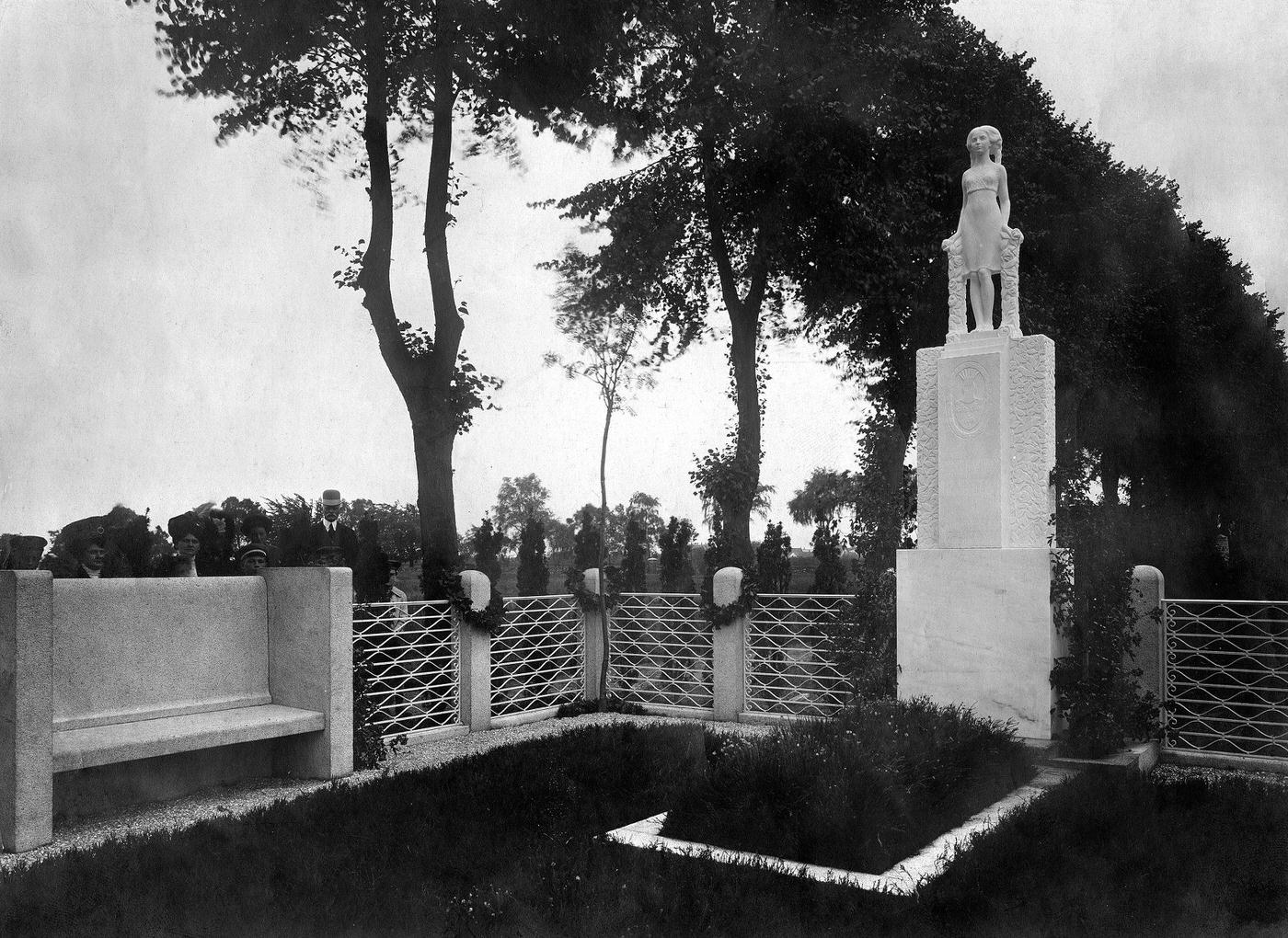
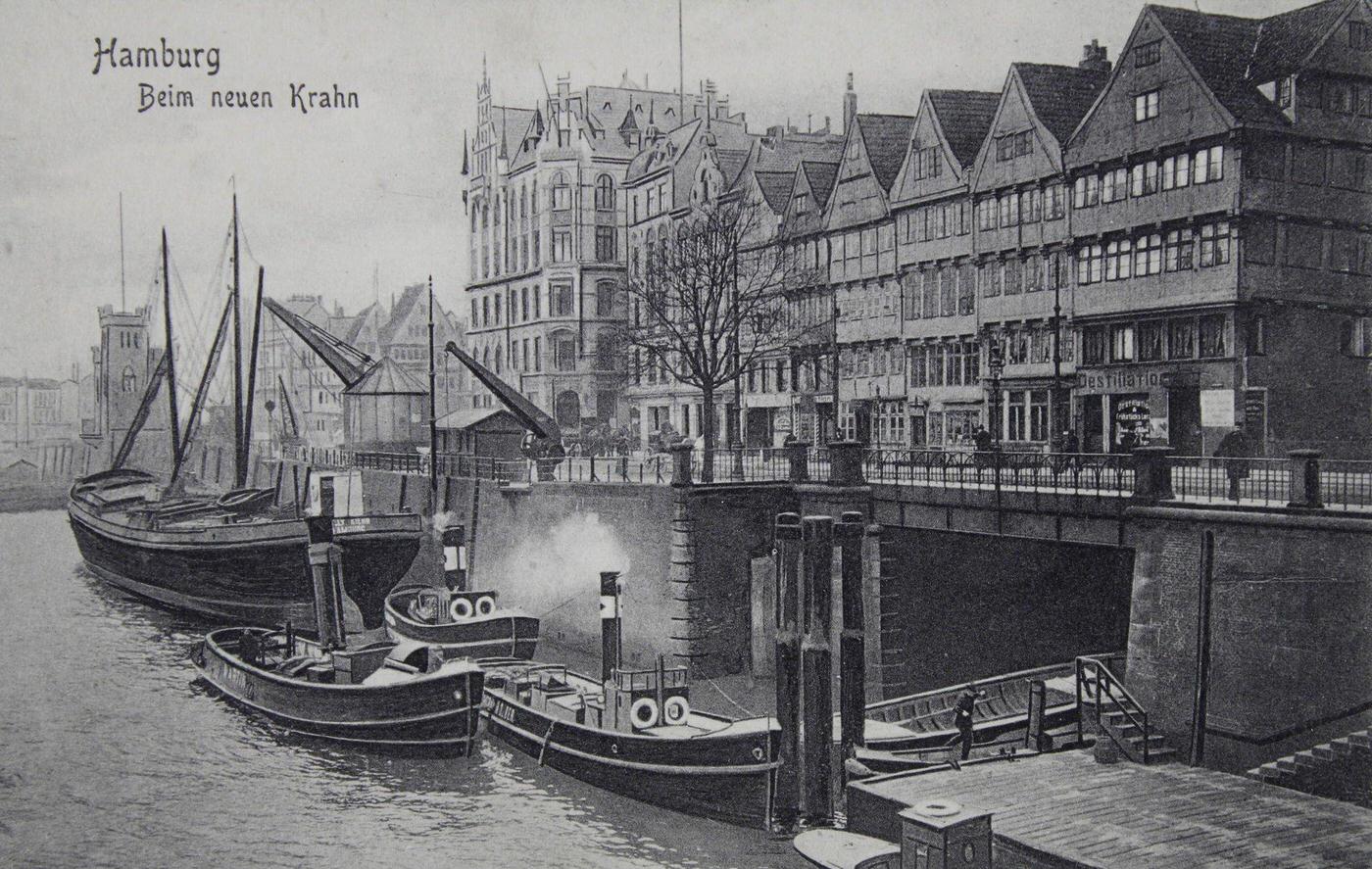
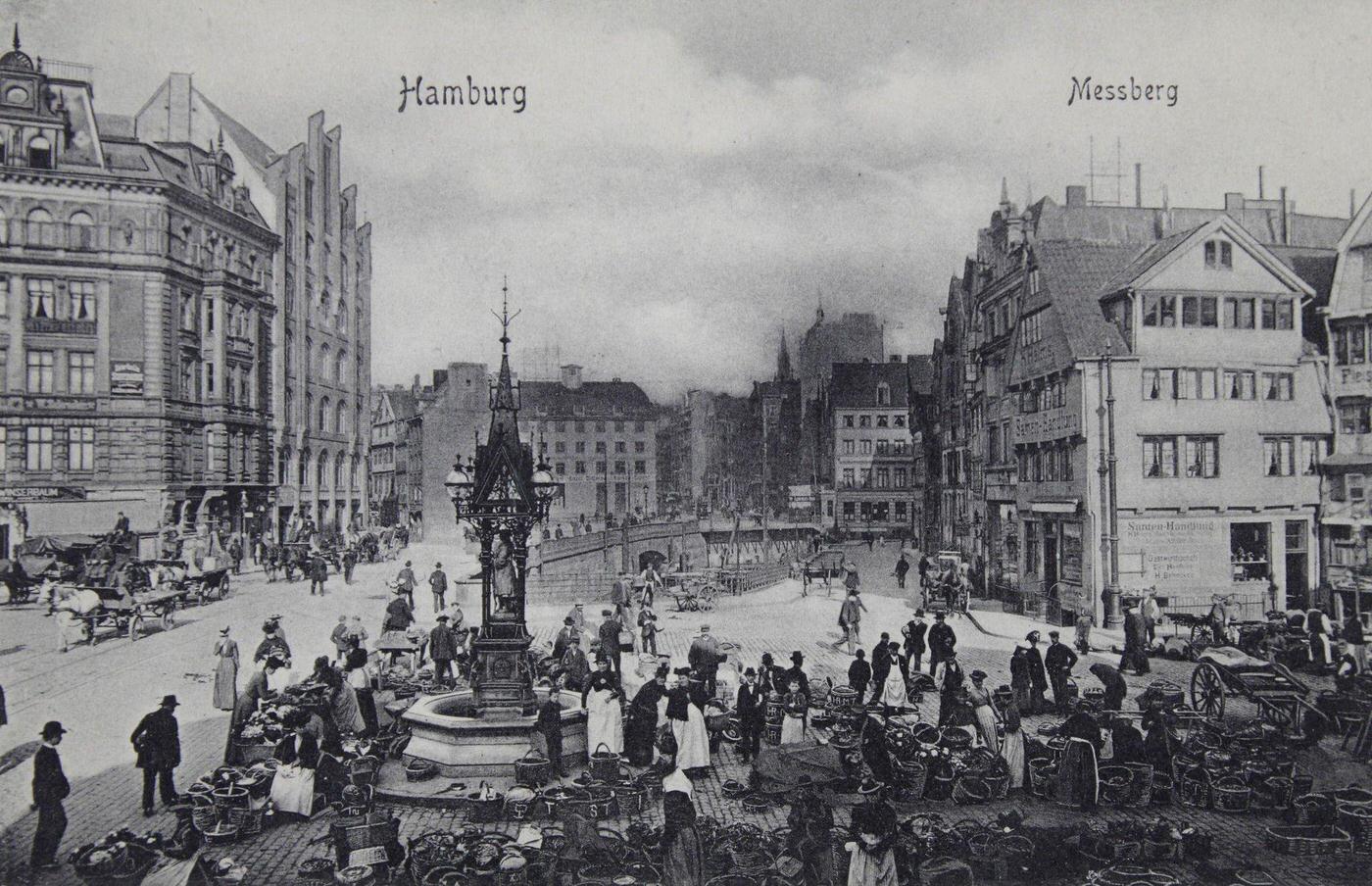
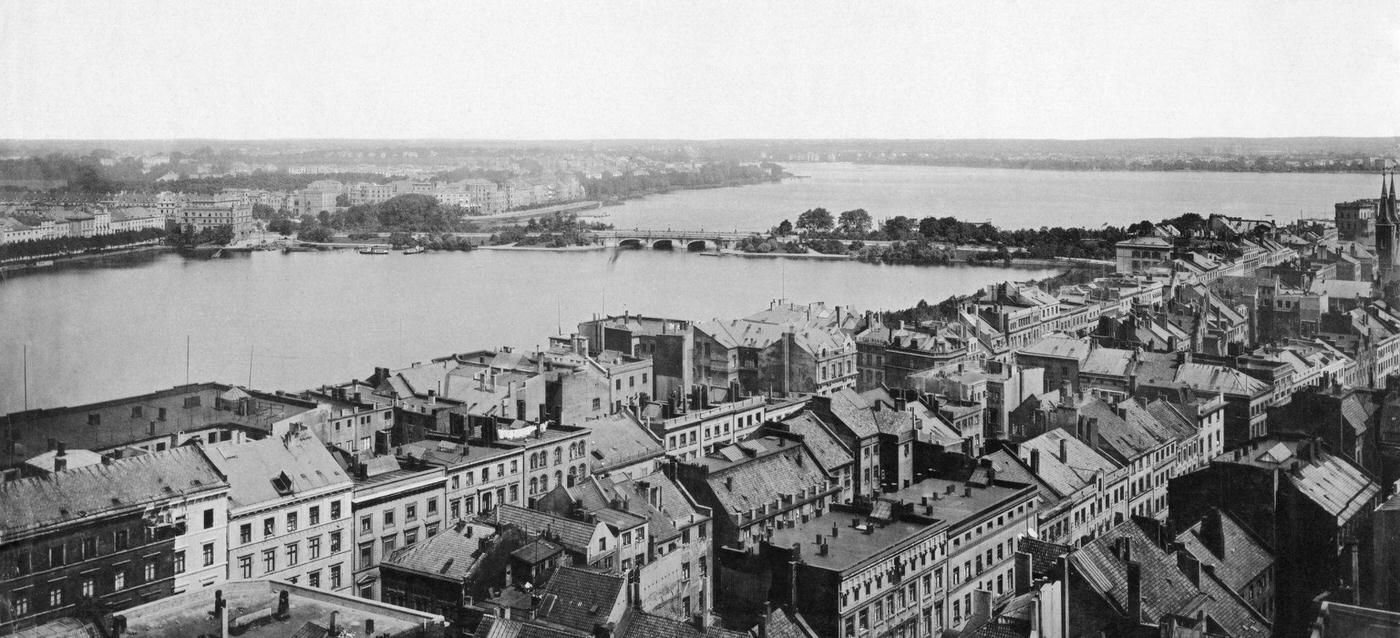
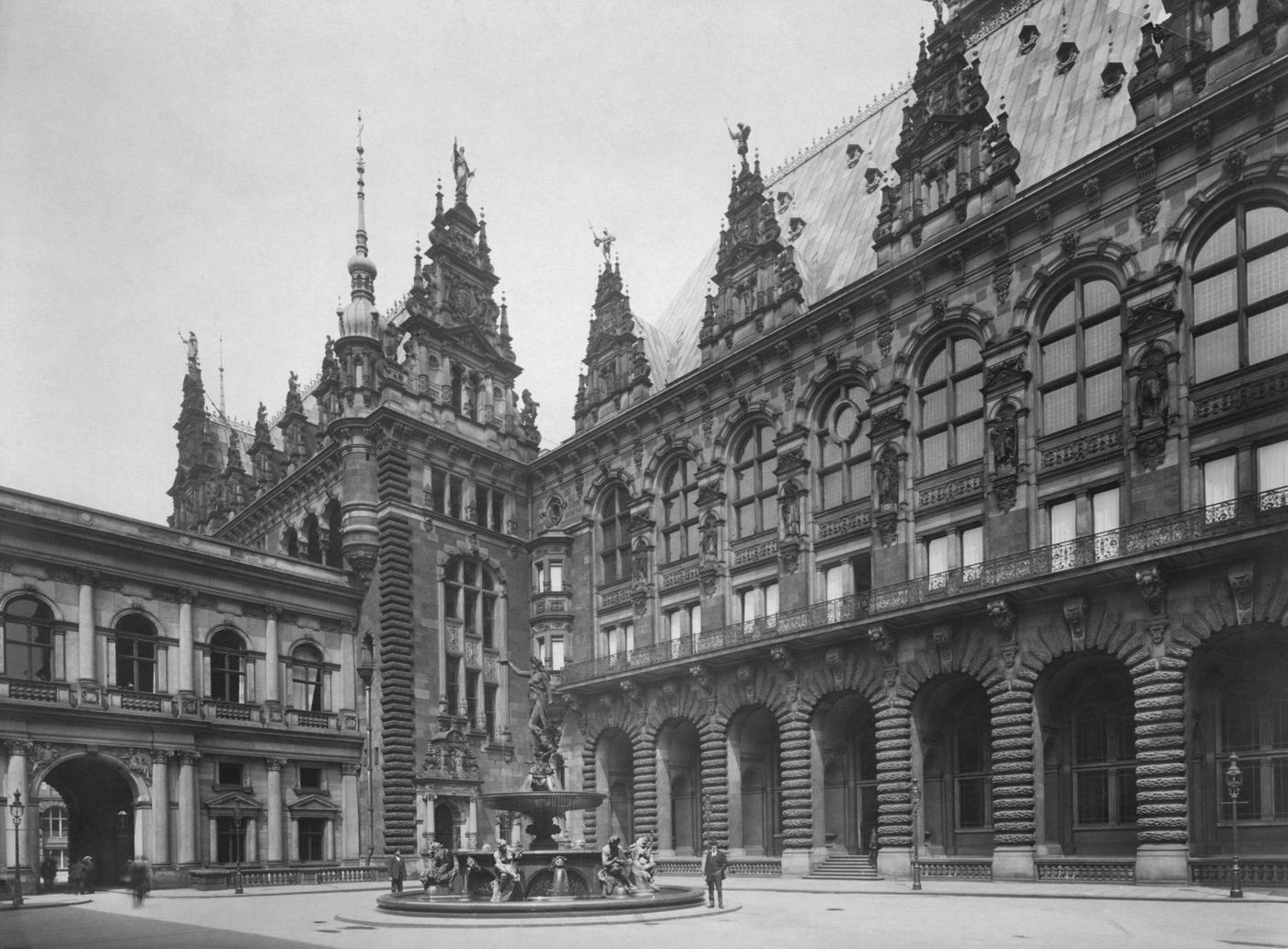
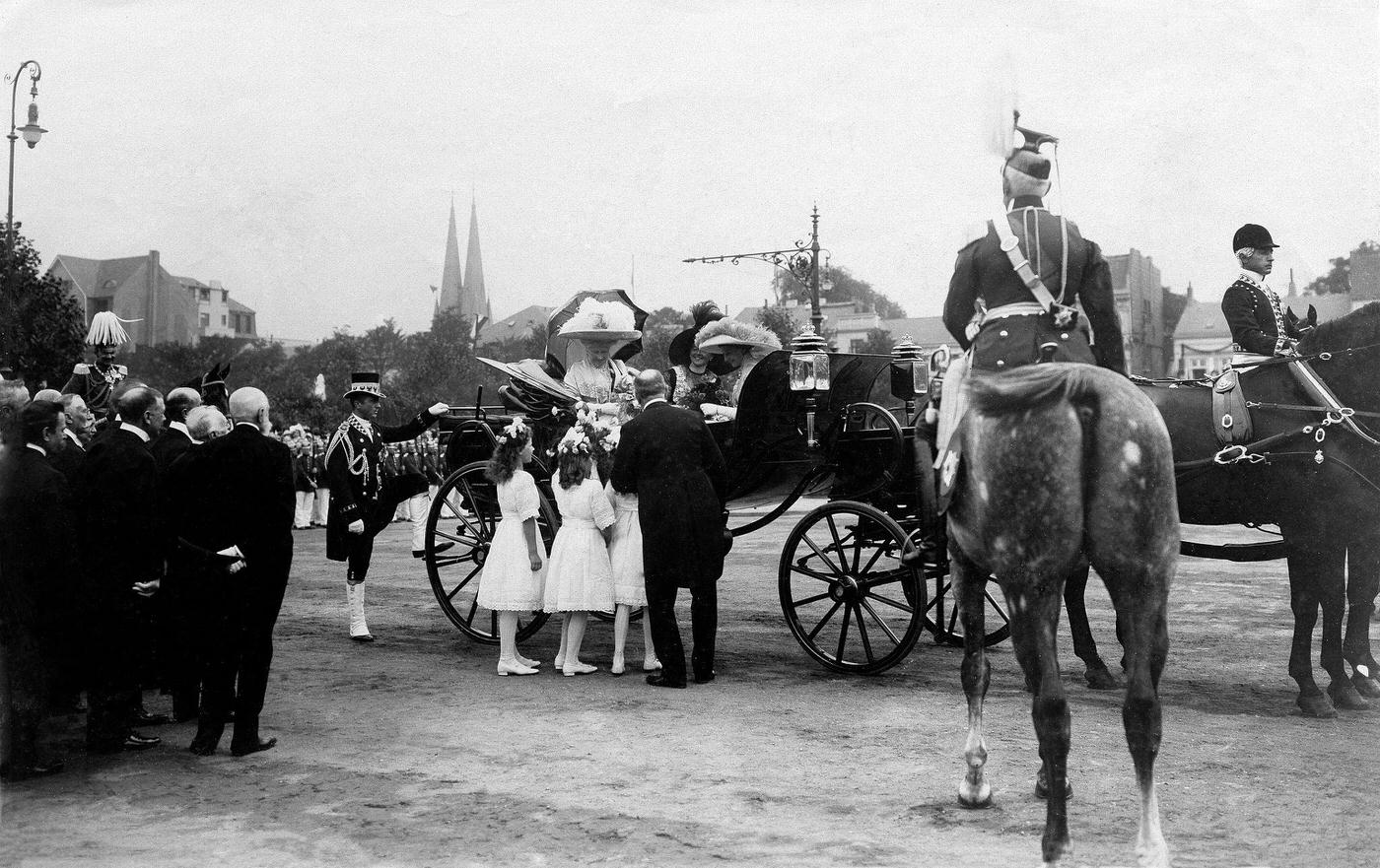
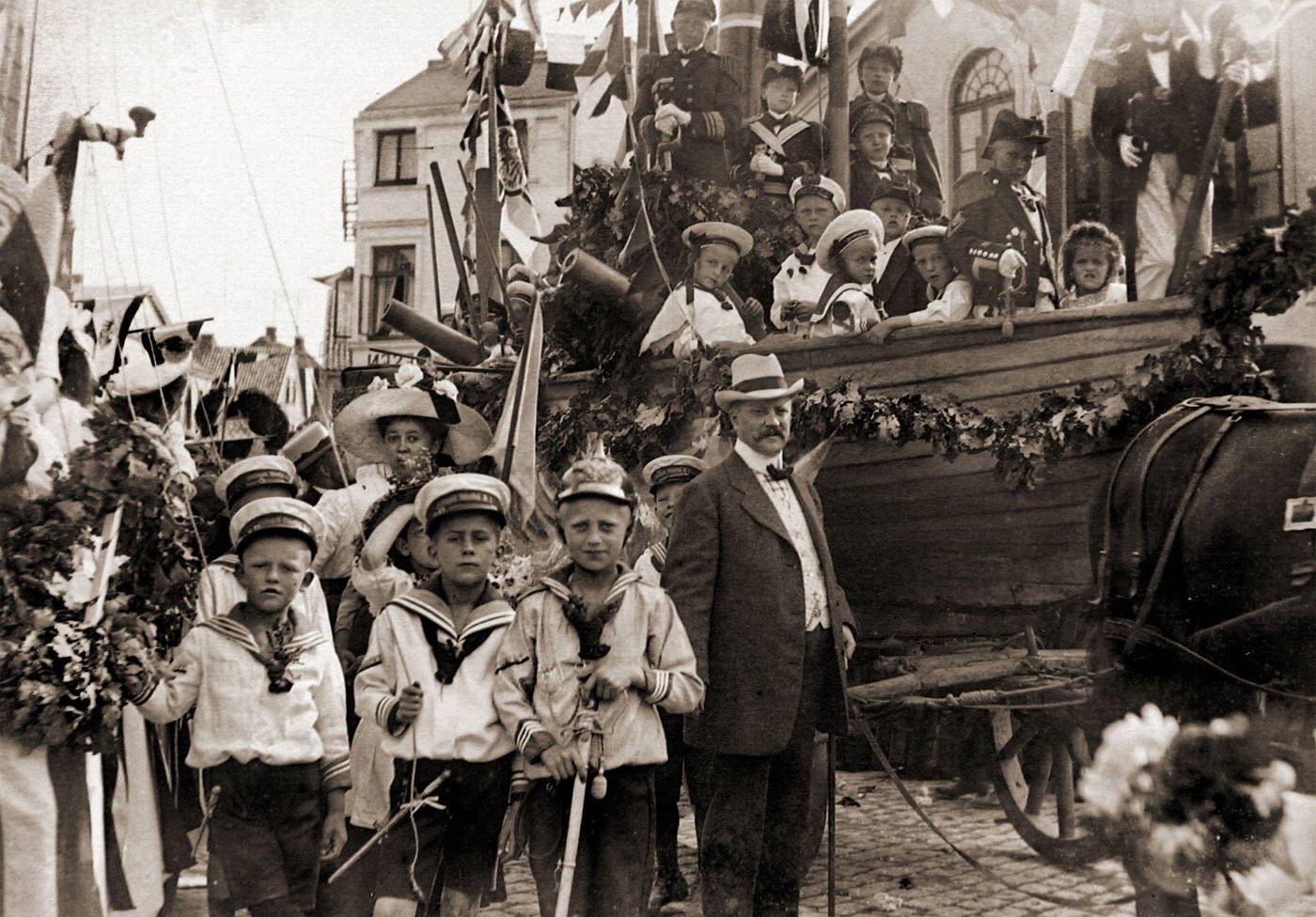
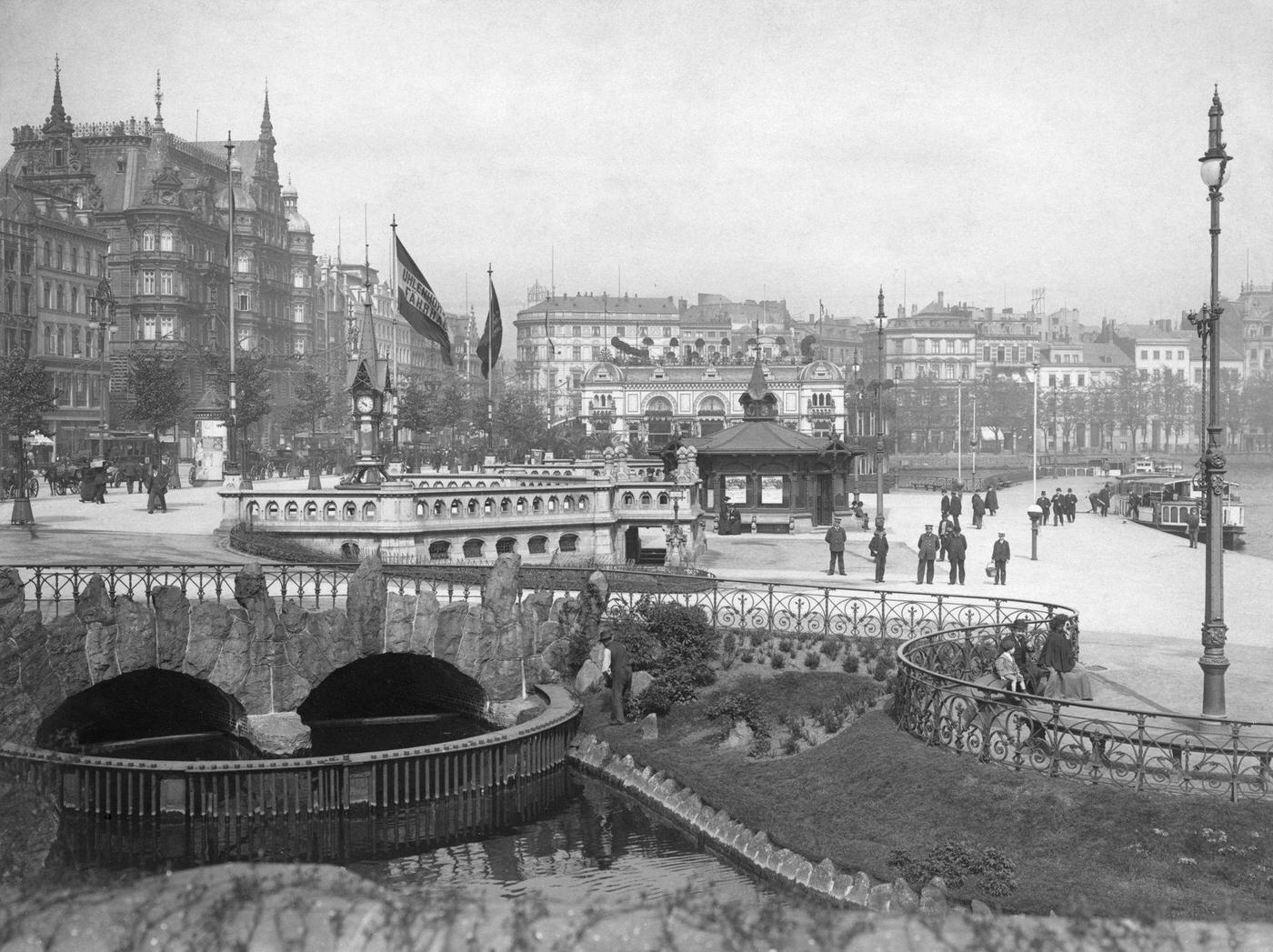
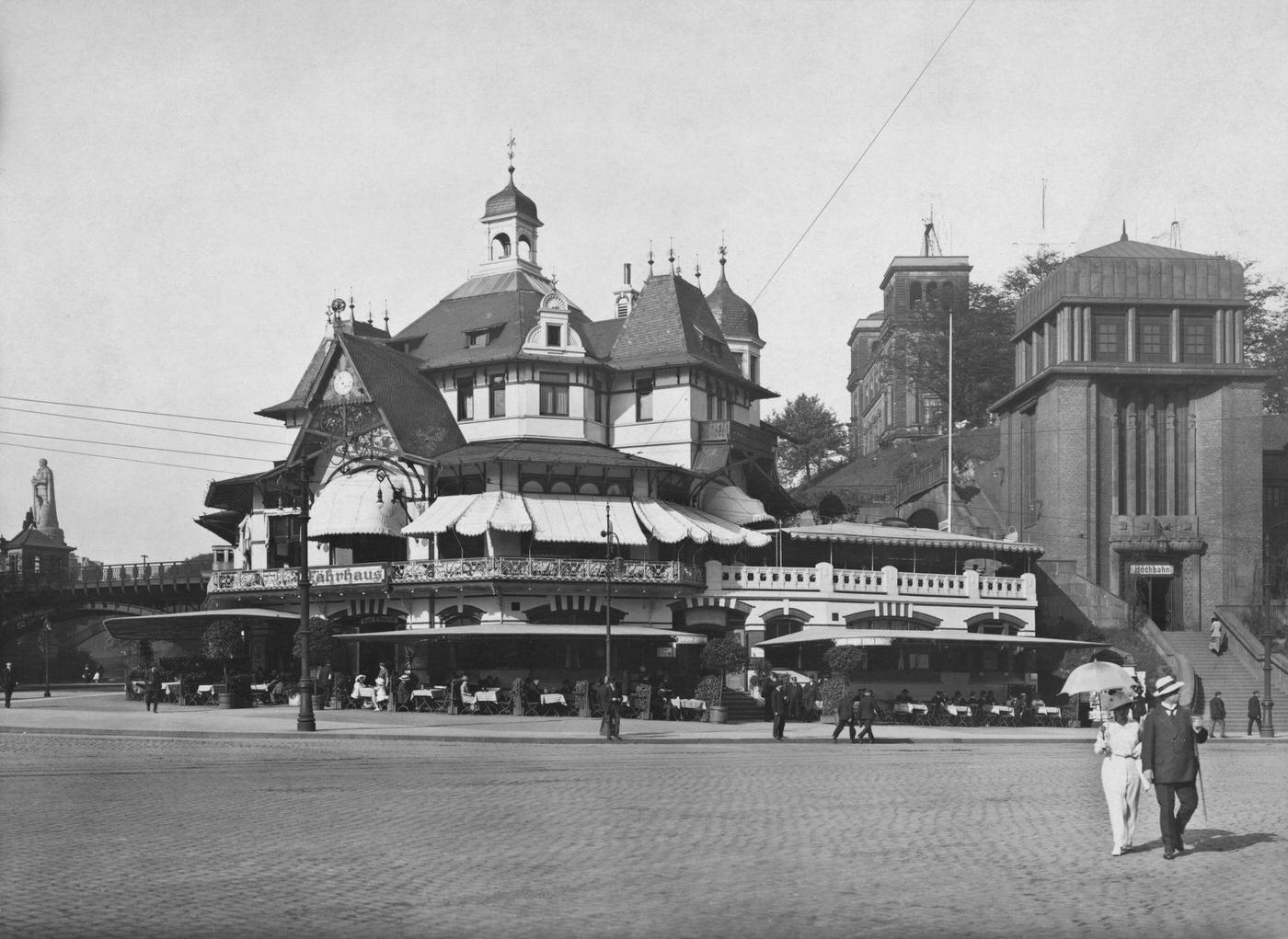
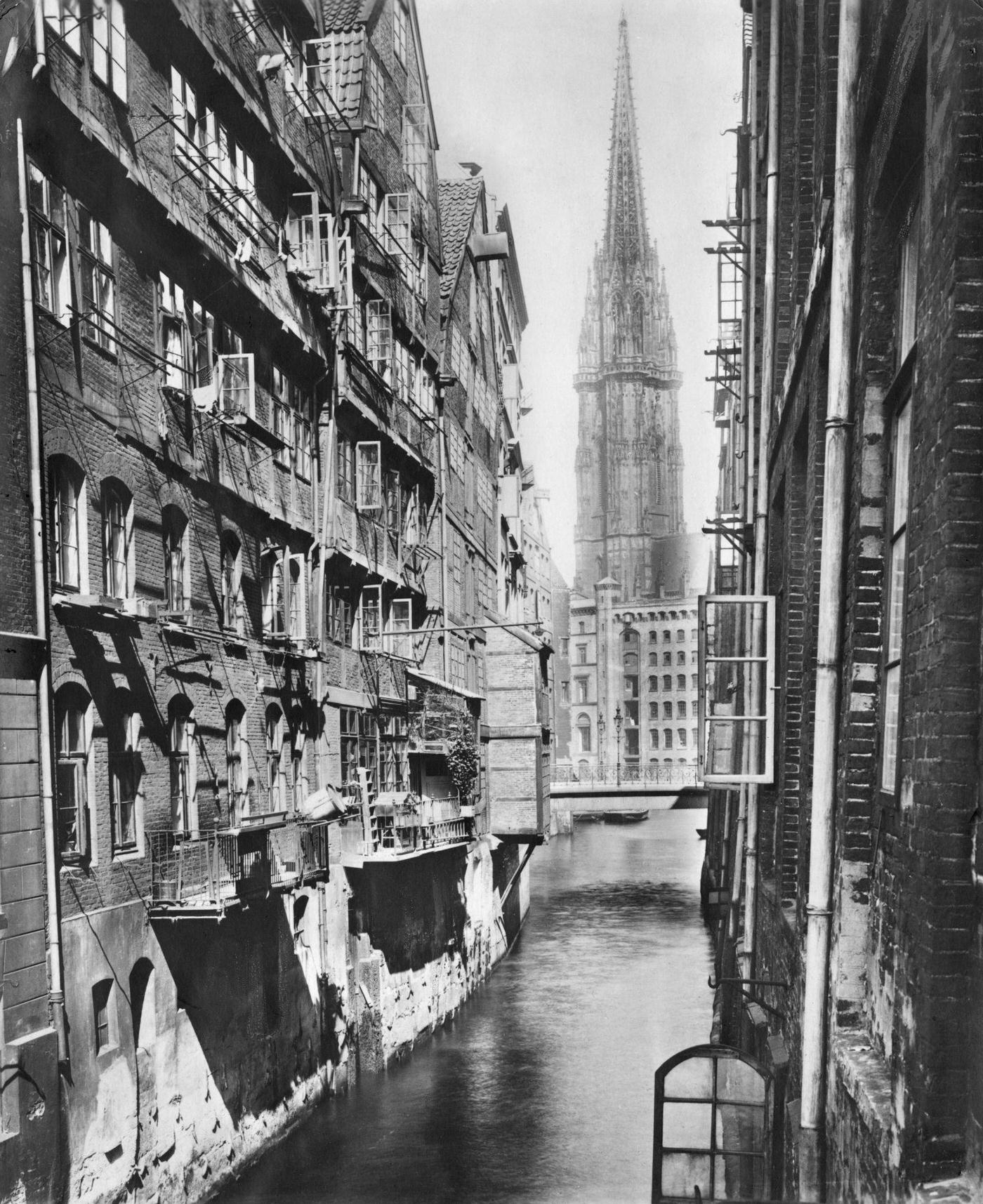
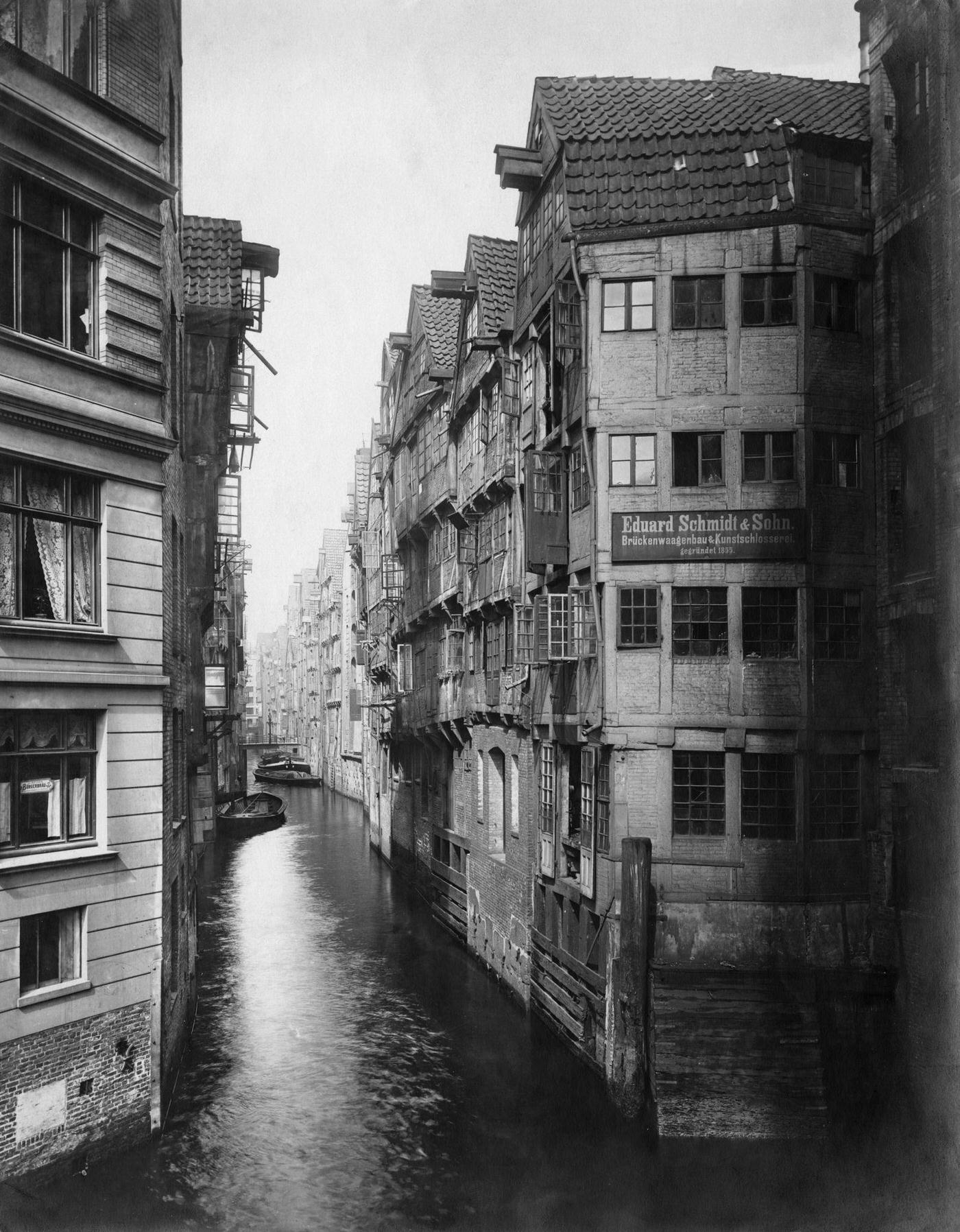
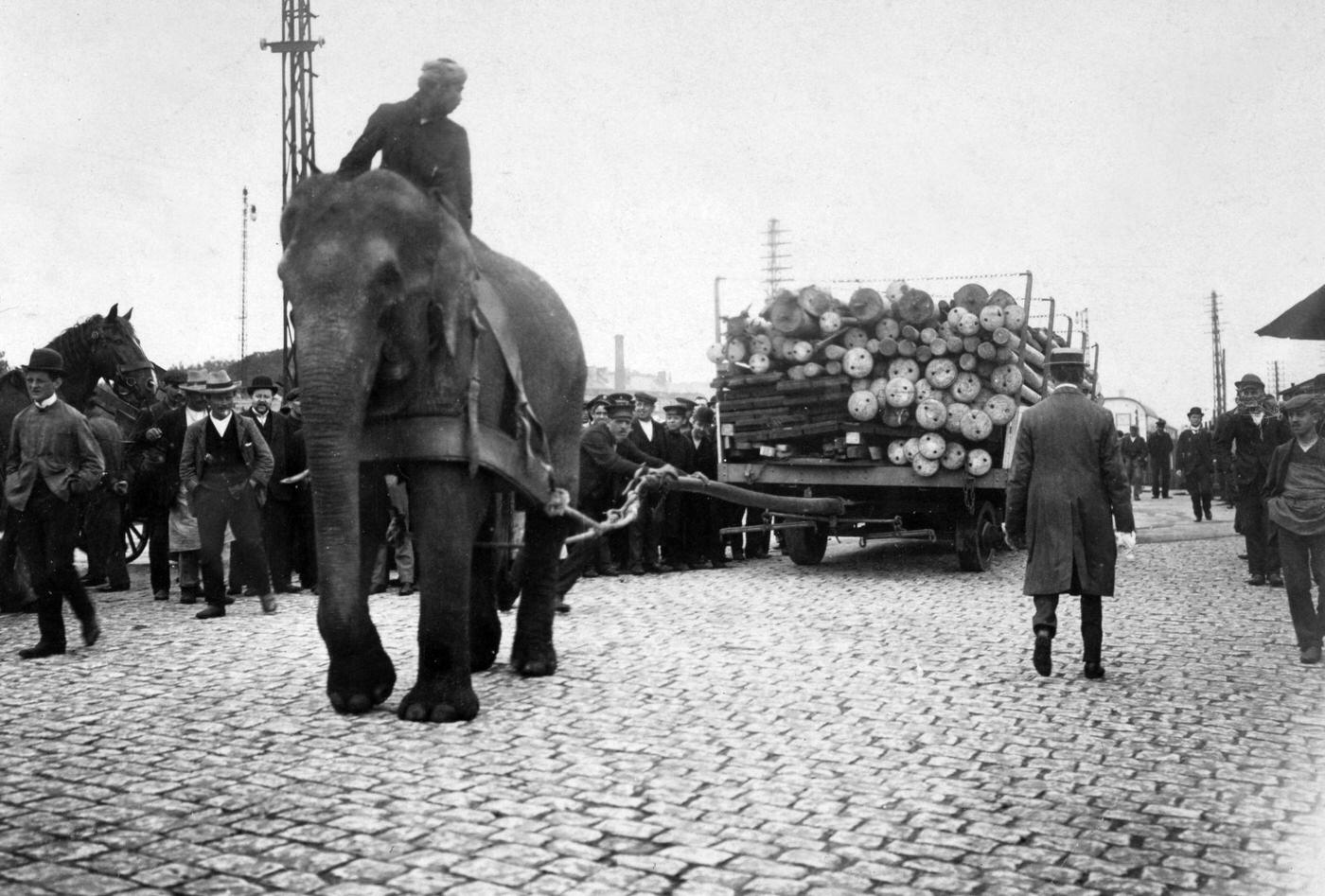
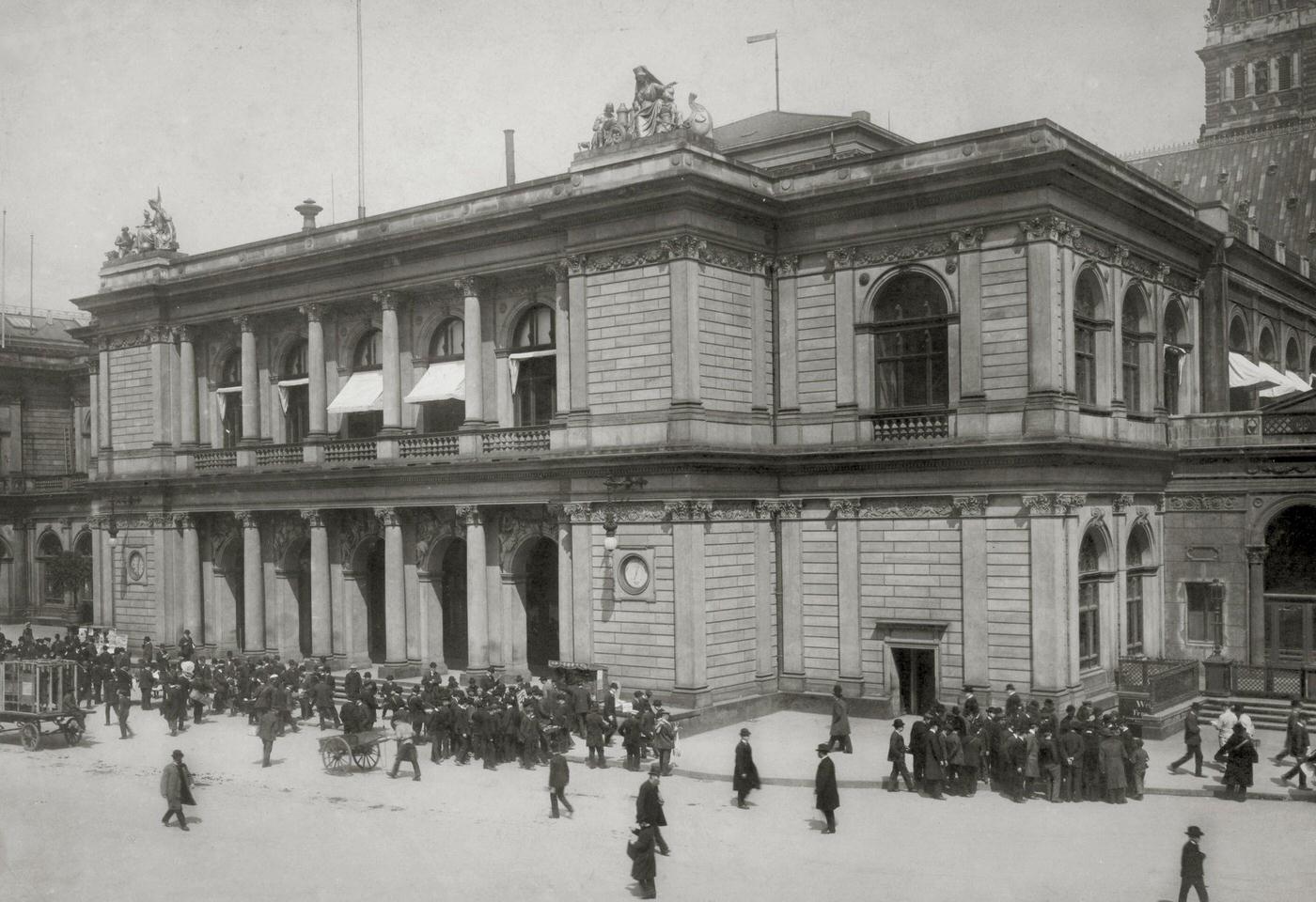
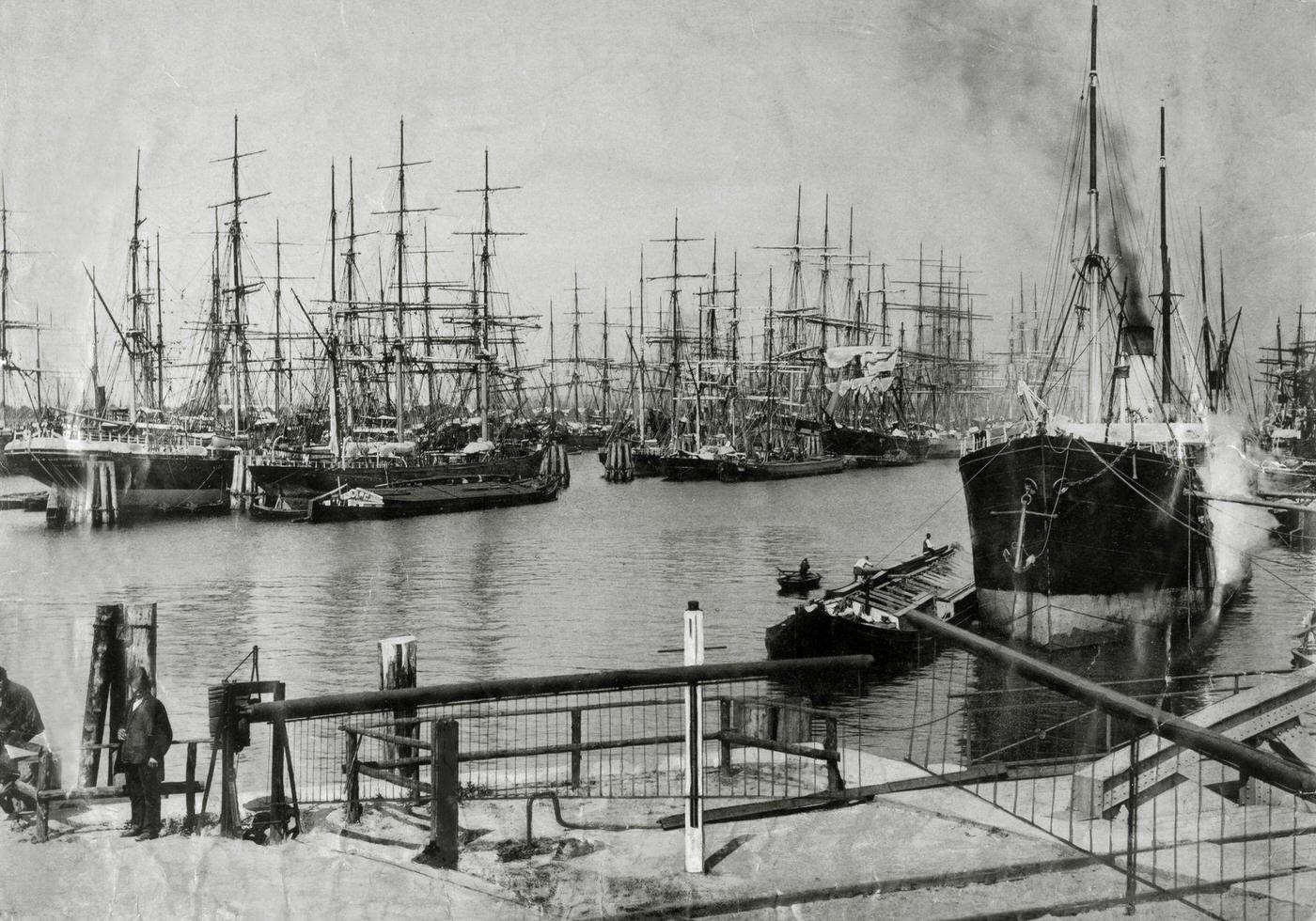

It was typical for its time, today’s Steinstraße is also typical for Hamburg’s city today. Office and commercial blocks, dead concrete.
Funny, I still see a lot of brick with residential buildings and restaurants on Steinstrasse…
Not sure what you are talking about. There is the giant, pretty tax office on one side and the other has a few brick buildings. I don’t see commerical or office blocks there. Just some stores and cafés.
At the end of the street, there are more old brick buildings and a church.
It then merges into another street with… more brick buildings and another church.
very cool pictures! I wonder whether Steinstrasse is represented so often because it is particularly typical or because it is the least typical. After all, it’s supposed to be Hamburg’s oldest street and perhaps the buildings there are correspondingly outdated?
What is so special about the picture of Meßberg?
Well, wouldn’t we then have to adapt every street and every district that still has an archaic spelling? For example, Rothenburgsort from your flair – that’s doubly wrong because historically it should actually have been called Rodenburgsort.
Yes, why not? I don’t care =D
Either according to historical spelling:
Meßberg, Rodenburgsort, Billwärder, Barmbeck
Or according to modern spelling:
Messberg, Rotenburgsort, Billwerder, Barmbek
I find this mishmash annoying and in Messberg’s case this confusion about a short e in front of nem ß is unnecessary
But in doing so you’re also opening a barrel that you can’t close so quickly – why can the Grasbrook still be called Grasbrook and not Grasbruch? Do we need to remove the stretching D (or the T, to accommodate the pronunciation?) from districts like Rahlstedt and Billstedt? Can Borgfelde continue to be called Borgfelde or will it become Burgfeld? Is Altona already enough of a proper name? And and and…
Is not so bad. If in doubt, you can vote on it or something